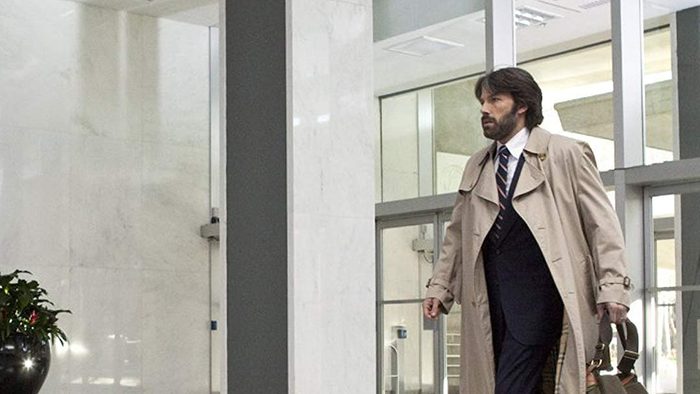
91. Argo (2012)
The worst thing the Academy Awards ever did was give Ben Affleck the impression that he was an artist. To be fair, Argo is not a terrible film by any means. As a director, Affleck manages to create some feeling of suspense in this true story of CIA agents attempting to smuggle American diplomats out of Tehran by posing as a science-fiction film crew. The real problem with Argo—other than the fact that it gives virtually no credit to the Canadian government’s part in the real-life mission—is that there’s not a single memorable scene or line of dialogue in the entire film, and that simply shouldn’t be the case for any film that wins an Oscar for Best Picture.
What Should Have Won Best Picture: Zero Dark Thirty
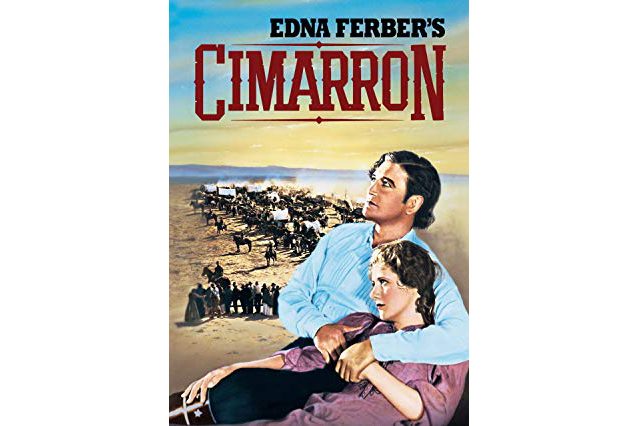
90. Cimarron (1930-1931)
Directed by Wesley Ruggles and starring Irene Dunne, pre-Hays Code Cimarron was the first Western to win the Academy Award for Best Picture. Set during the 1889 Oklahoma Land Rush, Cimarron laid the groundwork for the epics that would expand Hollywood’s audiences across the globe—not to mention the type of film Academy voters would quickly favor. Unfortunately, there’s not much in terms of drama in Cimarron. Take a look back at the Academy’s most memorable snubs.
What Should Have Won Best Picture: The Front Page
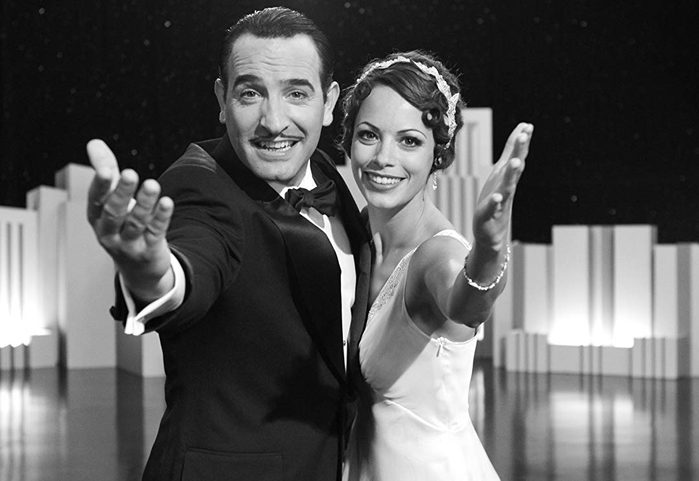
89. The Artist (2011)
Before his monumental fall from grace, Harvey Weinstein could turn utterly forgettable films into Oscar gold. Exhibit A: The Artist. This French throwback to American silent cinema was never supposed to be huge—its director, Michel Hazanavicius, and stars, Jean Dujardin and Bérénice Bejo, all previously collaborated on two modest spy film parodies in France. But when Weinstein bought The Artist’s distribution rights and launched an Oscar campaign, it was game over for Academy voters, who (in 2011, at any rate) seemed to have a soft spot for mediocrity. Here are the greatest movies to watch just for the clothes.
What Should Have Won Best Picture: The Tree of Life
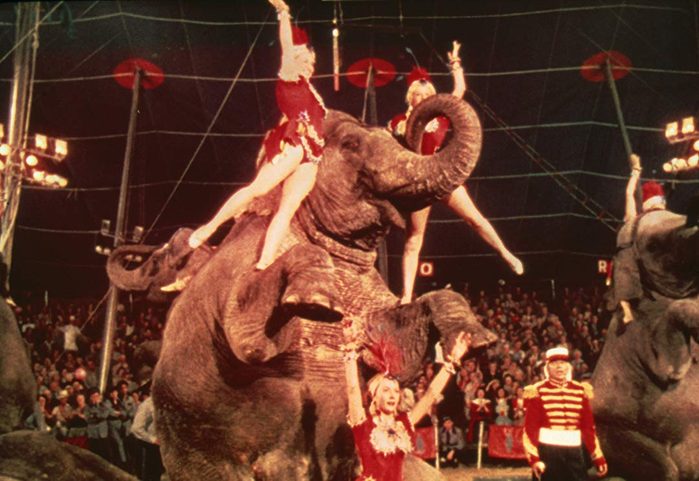
88. The Greatest Show on Earth (1952)
Is The Greatest Show on Earth the worst film to win Best Picture? No, but it’s close. Did voters give director Cecil B. DeMille the night’s biggest prize simply because they felt bad he hadn’t won any Academy Awards up to that point? Maybe. Is The Greatest Show on Earth nothing more than a two-hour advertisement for circuses with a few plot lines thrown in? Debatable, but it sure feels that way.
What Should Have Won Best Picture: High Noon
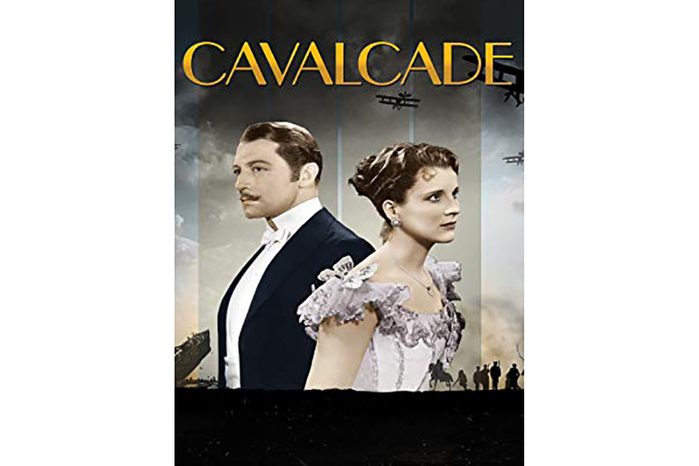
87. Cavalcade (1932-1933)
Like Cimarron before it, Cavalcade feels more like the answer to an Oscar trivia question than a film in its own right. Adapted from the Noël Coward play of the same title, Cavalcade stars Diana Wynyard and Clive Brook as an upper-class couple who, along with their children and servants, live through several Earth-shattering events in the first quarter of the 20th century. It’s all handsomely staged, but the film is ultimately hollow. These are the most iconic movies set in every state.
What Should Have Won Best Picture: 42nd Street
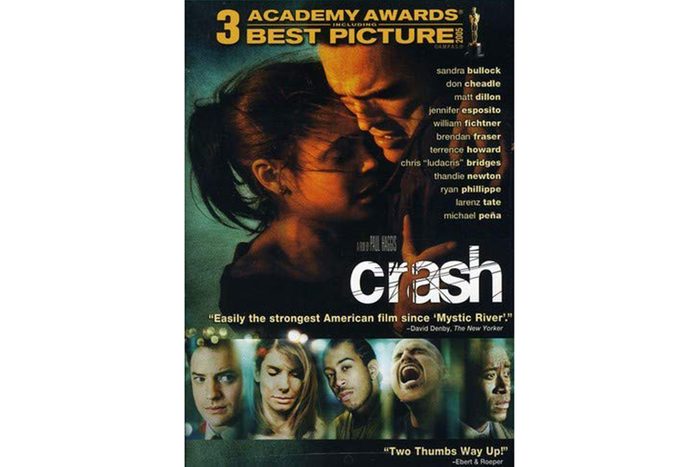
86. Crash (2005)
Even a well-meaning film doesn’t get a pass when it fails. Perhaps Canadian writer-director Paul Haggis really believed he was onto something with Crash, which examines racial tensions in Los Angeles from the perspectives of a Black detective, a Hispanic locksmith, a Persian storeowner and a white district attorney, among other characters. The film’s thesis—everyone is capable of racism—is solid enough; it’s just too bad the message is delivered through a series of laughably contrived scenarios. Matt Dillon’s nuanced performance as a racist cop is the film’s sole saving grace.
What Should Have Won Best Picture: Brokeback Mountain
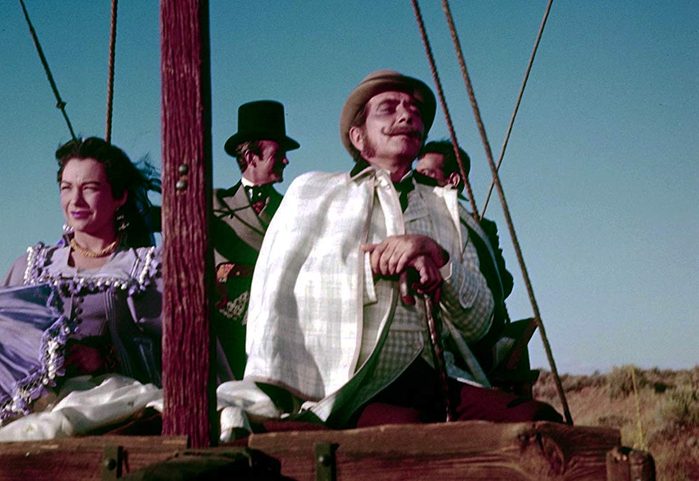
85. Around the World in 80 Days (1956)
Pomp and circumstance was the name of the game in 1950s Hollywood: the bigger your film, the more highly regarded it would be in the eyes of Academy voters. Case in point: Around the World in 80 Days. Michael Anderson’s adaptation of Jules Verne’s beloved novel used more than 140 sets, 68,894 extras, 74,685 costumes, and more than 40 celebrity cameos. The result? Empty fun. After you’re done watching all of these award-winning movies, you’ll also want to tackle these books everyone should read before they die.
What Should Have Won Best Picture: The Ten Commandments
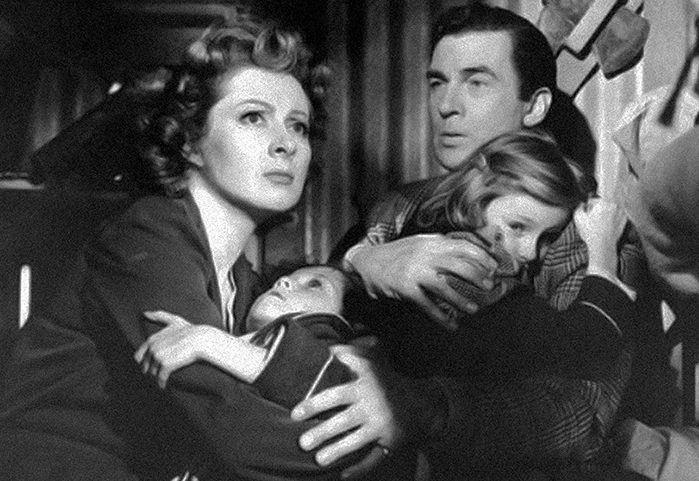
84. Mrs. Miniver (1942)
Winner of six Academy Awards, William Wyler’s Mrs. Miniver is widely credited with increasing American support for World War II. In fact, Winston Churchill reportedly said it was more important to the war effort than an entire fleet of battleships. Starring Greta Garson and Walter Pidgeon, Mrs. Miniver depicts the experiences of a middle-class English family during the war. Audiences may have loved it back in 1942, but it really is just propaganda masquerading as melodrama.
What Should Have Won Best Picture: The Magnificent Ambersons
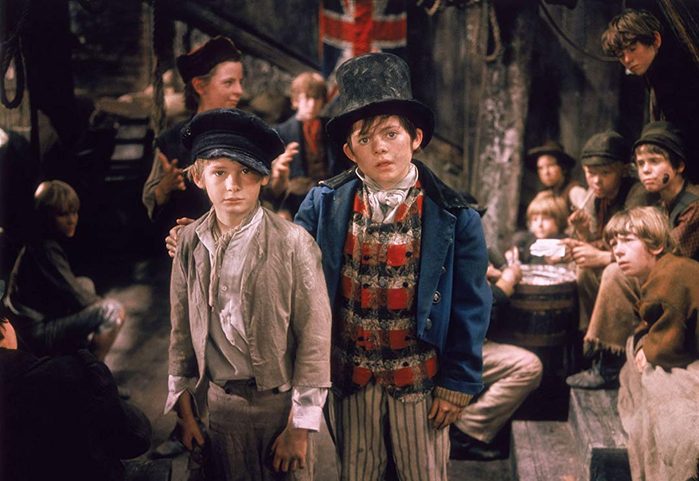
83. Oliver! (1968)
“Please sir, I want some more.” Charles Dickens’ Oliver Twist is so famous a novel, even those who haven’t read are familiar with the tale of a plucky orphan who falls in league with a ragtag bunch of London pickpockets. Still, even a master filmmaker like Carol Reed can’t save this song-and-dance spectacle. You’d better love the songs because that’s pretty much all there is to Oliver!
What Should Have Won Best Picture: The Lion in Winter
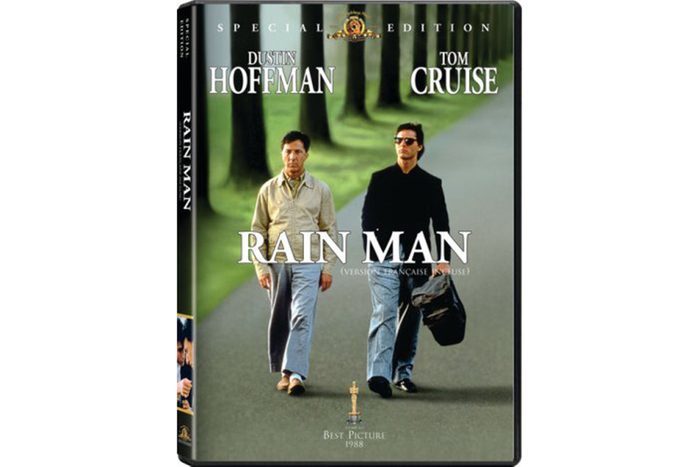
82. Rain Man (1988)
The best thing about Rain Man is its movie poster. This story of a yuppie car dealer (Tom Cruise) who goes on a road trip with his autistic savant brother (Dustin Hoffman) set a dangerous precedent when it won Best Picture at the 61st Academy Awards: if a film makes you feel good, and its message is moral and positive, then it deserves to win. Hoffman’s career peaked with Rain Man, but fortunately, Cruise would go on to do bigger, better and more mature things. You probably won’t believe these surprising movie trivia facts.
What Should Have Won Best Picture: Dangerous Liaisons
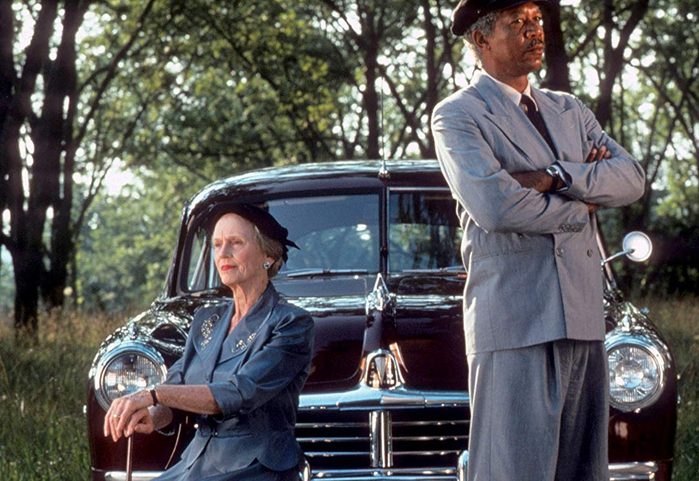
81. Driving Miss Daisy (1989)
Based on the Pulitzer Prize-winning play of the same name, the decades-spanning Driving Miss Daisy tells the story of Daisy Werthan (Jessica Tandy), a wealthy Jewish widow, and her black driver, Hoke Colburn (Morgan Freeman); who form an unlikely bond during a period of dramatic social change. Driving Miss Daisy has the uncanny ability to tug on the heartstrings. It’s also not remotely Oscar-calibre. Want to engage with like-minded literature lovers? Find out the 10 best cities for book lovers.
What Should Have Won Best Picture: Dead Poets Society
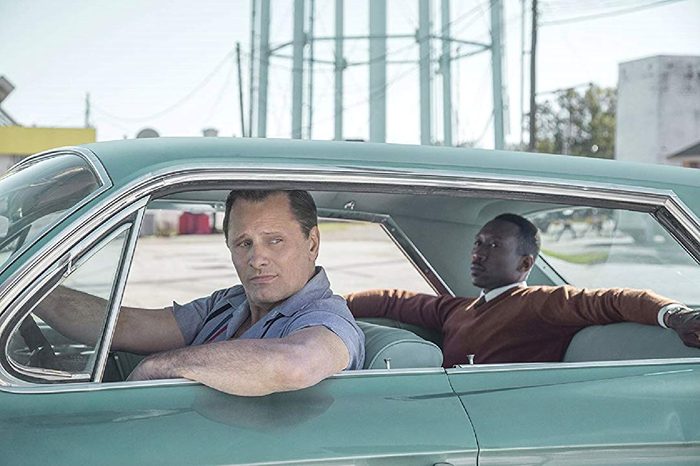
80. Green Book (2018)
Green Book‘s premise is intriguing enough: Italian-American bouncer Tony “Lip” Vallelonga (Viggo Mortensen) becomes the chauffeur for Black classical pianist Dr. Don Shirley (Mahershala Ali) during his 1962 concert tour of the Deep South. Unfortunately, Green Book is far more interested in Vallelonga’s redemption arc than Shirley’s battles against racism, forcing Shirley to take a backseat in his own true story. Green Book may be a reverse Driving Miss Daisy, but it’s equally as vapid.
What Should Have Won Best Picture: Roma
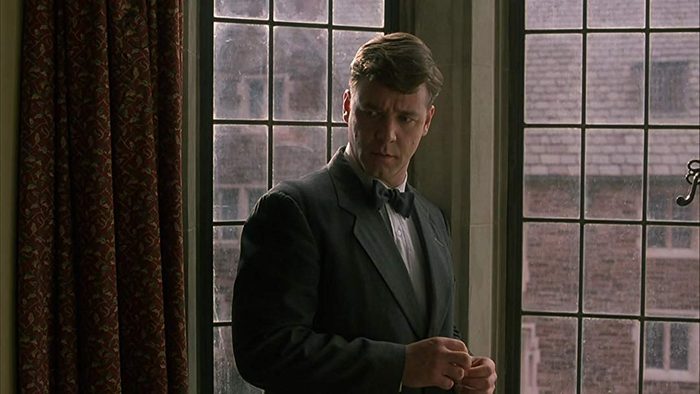
79. A Beautiful Mind (2001)
It’s easy to see what made audiences and Academy voters fall in love with A Beautiful Mind back in 2001. Russell Crowe was on top of the world, Ron Howard was a capable director-for-hire, and honestly, it’s a lot of fun watching really smart people do really smart things. Still, it’s hard to look past A Beautiful Mind’s deeply formulaic take on mathematician John Forbes Nash’s struggle with schizophrenia, despite a few strong performances.
What Should Have Won Best Picture: The Lord of the Rings: The Fellowship of the Ring
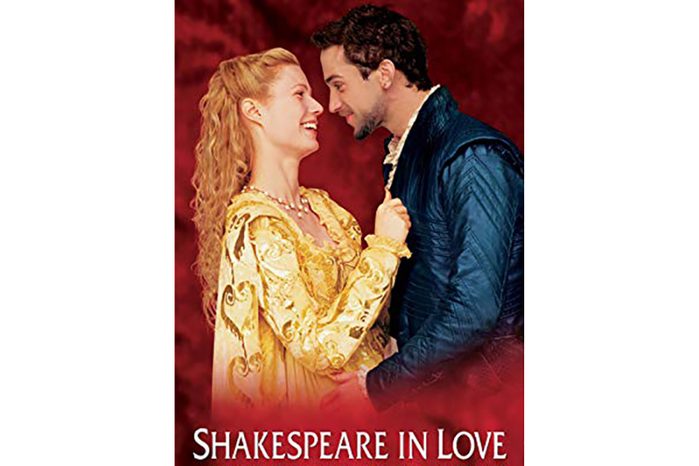
78. Shakespeare in Love (1998)
Never mind the fact that Shakespeare in Love beat out two of the greatest war films ever made for Hollywood’s most prized statue—it wasn’t even the best Elizabethan drama nominated that year. Sure, the whimsical romance between the Bard of Avon and the fictitious Viola de Lesseps is lovely to watch, and its approach in adapting Shakespeare to the big screen is inventive, but Best Picture of 1998 it certainly is not. These 22 Shakespearean insults still sting today.
What Should Have Won Best Picture: Saving Private Ryan

77. Out of Africa (1985)
Even Meryl Streep and Robert Redford can’t save Sydney Pollack’s superficial Out of Africa, based on the acclaimed memoir of the same name. It might have seemed impossible to make a film about a woman’s adventures and revelations in Kenya boring, but Out of Africa manages to do just that. Here are 10 of the best autobiographies you need to read.
What Should Have Won Best Picture: Witness
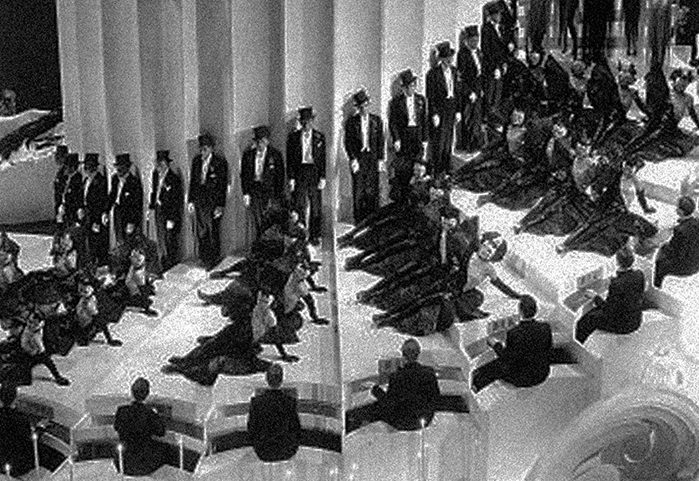
76. The Great Ziegfeld (1936)
A mildly entertaining—but ultimately empty—biopic of the famous Broadway impresario Florenz Ziegfeld (William Powell), whose theatrical revues, the Ziegfeld Follies, ran from 1907 to 1931. Myrna Loy is memorable as his wife, Billie Burke, as is Luise Rainer in a role that won her an Academy Award. Unfortunately, gloss and glitter don’t equate Best Picture.
What Should Have Won Best Picture: Mr. Deeds Go to Town
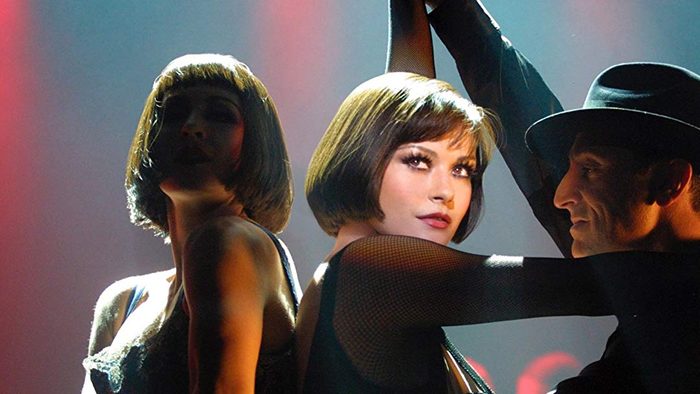
75. Chicago (2002)
Like Bob Fosse before him, Rob Marshall’s name is synonymous with larger-than-life narratives and exciting choreography. In his feature film debut (another Weinstein production), Marshall gathered Hollywood’s top technicians and actors (Renée Zellweger, Catherine Zeta-Jones and Richard Gere, to name a few) to retell the story of a chorus dancer who murders her lover and achieves nationwide notoriety. Its lampooning of the American justice system and celebrity culture is entertaining, but it was facing better competition at the 75th Academy Awards.
What Should Have Won Best Picture: The Pianist
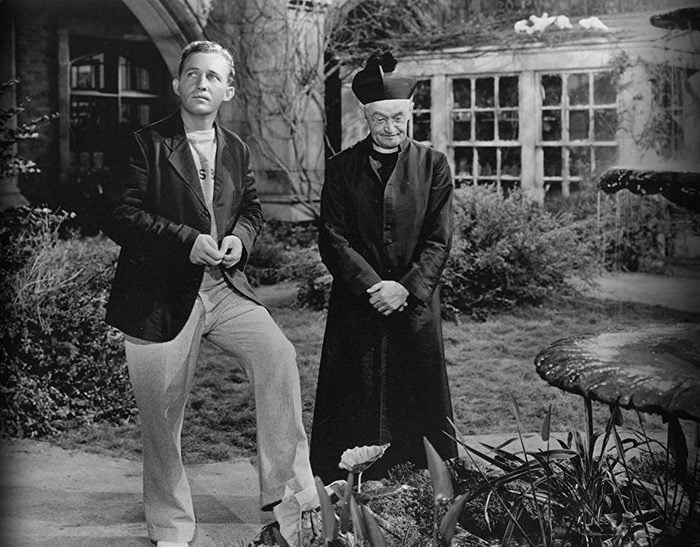
74. Going My Way (1944)
In Going My Way, Bing Crosby stars as Father Chuck O’Malley, a happy-go-lucky priest who takes over a rundown parish, attempts to please the cantankerous Father Fitzgibbon, and organizes a choir for a local gang of troubled youths. Director Leo McCarey’s film is often delightful, but its saccharine sentimentality can be too much for some. These are the funniest movies of all time.
What Should Have Won Best Picture: Double Indemnity
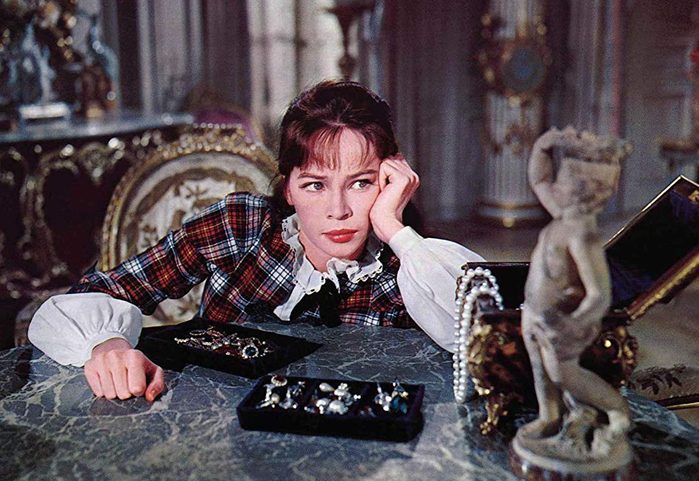
73. Gigi (1958)
Vincente Minnelli directed this Parisian musical about a wealthy playboy (Louis Jourdan) who falls in love with the titular courtesan (Leslie Caron) against a backdrop of Lerner and Loewe tunes. Gigi commits the cinematic cardinal sin: it’s forgettable. In its favor, the stunning location filming will likely have you looking up the next flights into Paris.
What Should Have Won Best Picture: The Defiant Ones
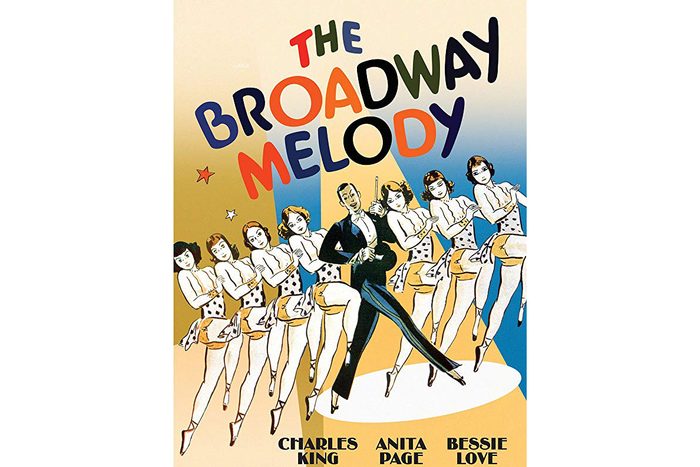
72. The Broadway Melody (1928-1929)
The Broadway Melody is important for three things: it was the first sound film to win Best Picture, it was the first all-talking musical Hollywood had produced, and it once featured a Technicolor sequence, sparking an industry-wide interest in color. Historical importance aside, this story of two sisters dreaming of making it big on the Great White Way can be summed up in one word: dated. These 12 historical predictions completely missed the mark.
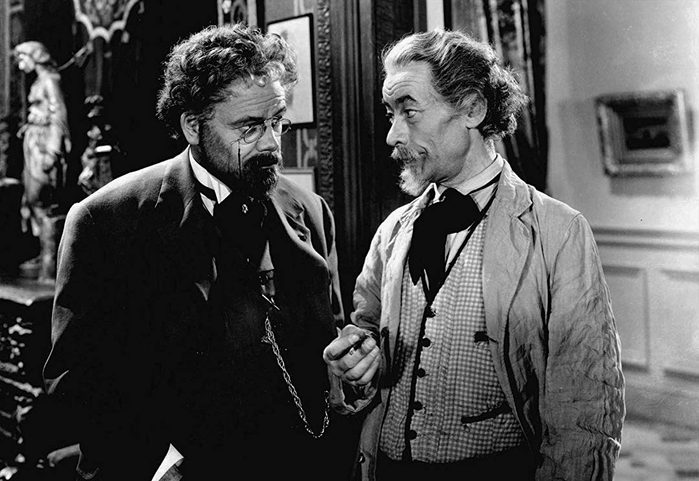
71. The Life of Emile Zola (1937)
What on earth possessed Warner Bros. to release a film about a novelist and playwright who was virtually unknown outside of his home country of France? The Life of Emile Zola is one of the earliest examples of Hollywood’s obsession for the biopic. Despite its relative obscurity, one of the film’s main themes—the jailing of French Jewish artillery officer Alfred Dreyfus—has been viewed by many critics as Hollywood’s first attempt to address anti-Semitism and the Nazi Party.
What Should Have Won Best Picture: The Awful Truth
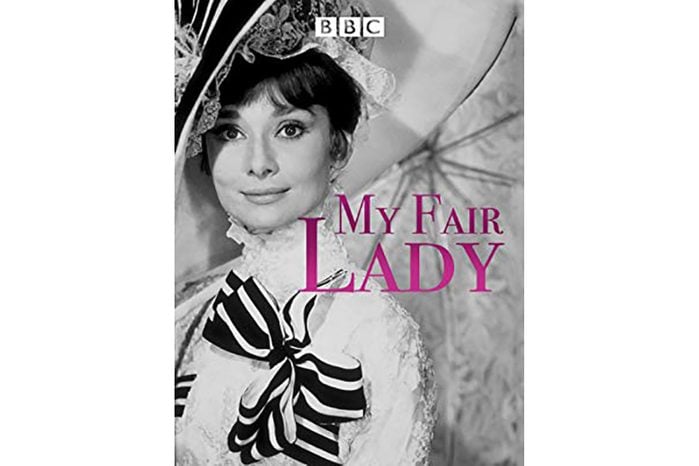
70. My Fair Lady (1964)
Four musicals won Best Picture during the 1960s, and George Cukor’s My Fair Lady is one of the worst of the bunch. It’s worth watching for the always-lovely Audrey Hepburn and the lavish costumes, but song-and-dance shouldn’t have trumped the greatest satirical film of the decade…
What Should Have Won Best Picture: Dr. Strangelove
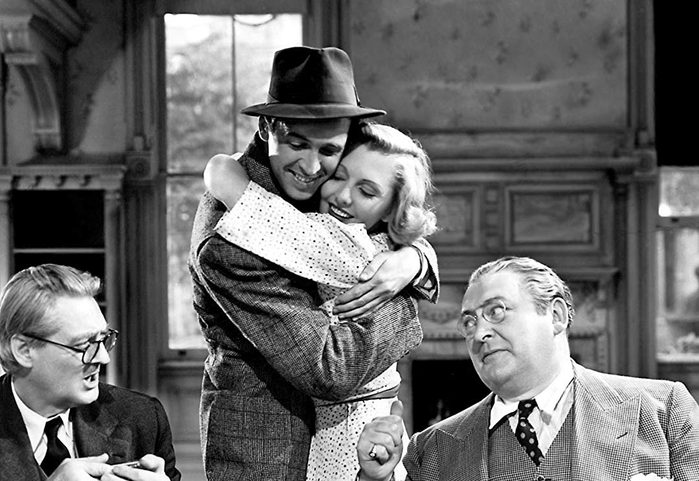
69. You Can’t Take It with You (1938)
Frank Capra was on a roll when he directed You Can’t Take It With You, an adaptation of a successful Broadway play and the first to have a filmmaker’s name preceding the title. Unfortunately, the film’s mixture of light and dark subject matter feels like a warm-up for Capra’s real masterpiece, It’s A Wonderful Life.
What Should Have Won Best Picture: Grand Illusion
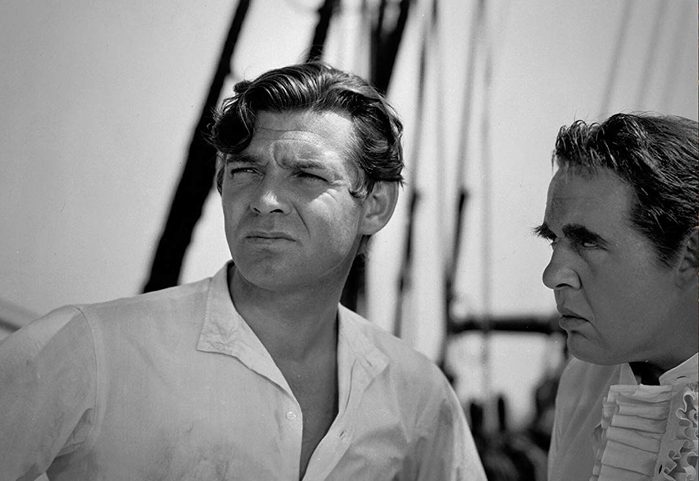
68. Mutiny on the Bounty (1935)
Clark Gable stars as Fletcher Christian (Clark Gable), first mate of the HMS Bounty, who leads a mutiny against the psychotic Captain William Bligh (Charles Laughton) after he causes the death of the ship’s doctor. Frank Lloyd’s Mutiny on the Bounty was a box office smash, helped solidify Gable’s star in Hollywood, and is perhaps the best adaptation of this often-told story.
What Should Have Won Best Picture: Top Hat
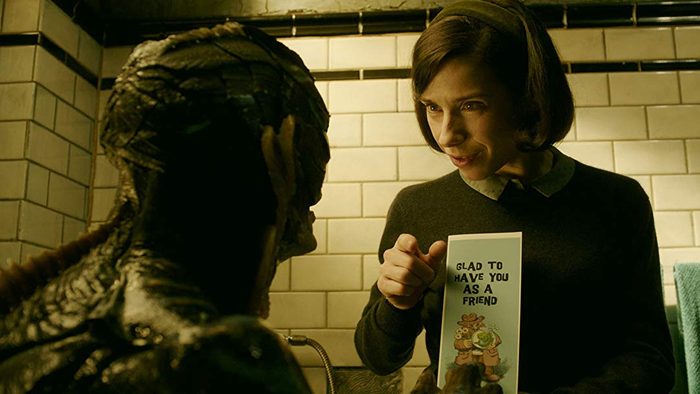
67. The Shape of Water (2017)
In Guillermo del Toro’s fantastical throwback to the Golden Age of Hollywood, a mute cleaning lady (Sally Hawkins) falls in love with a humanoid amphibian creature (Doug Jones) at the top-secret research facility where she’s employed. While The Shape of Water is indeed a technical marvel, its exploration of weighty themes—Cold War-era politics, sexuality and disability—is awfully simplistic, and del Toro’s characters walk a fine line between archetypes and clichés. It’s nice to see strange films like The Shape of Water win big at the Oscars, but an even weirder love story deserved the golden statue more…
What Should Have Won Best Picture: Phantom Thread
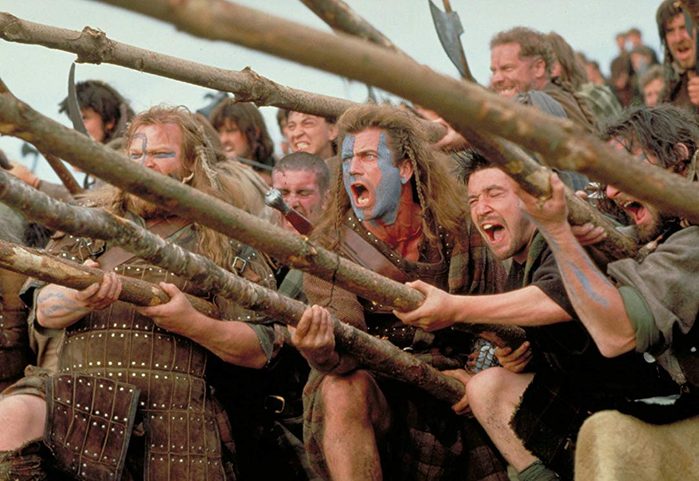
66. Braveheart (1995)
Big on spectacle but lacking in any kind of emotional depth or complexity, Braveheart was Mel Gibson’s directorial “I have arrived” moment. His take on legendary warrior William Wallace, who led the wars of Scottish independence against the British, played a huge role in bringing Wallace’s legend to the mainstream. While an impressive technical effort for Gibson, Braveheart is a wildly uneven movie.
What Should Have Won Best Picture: Apollo 13
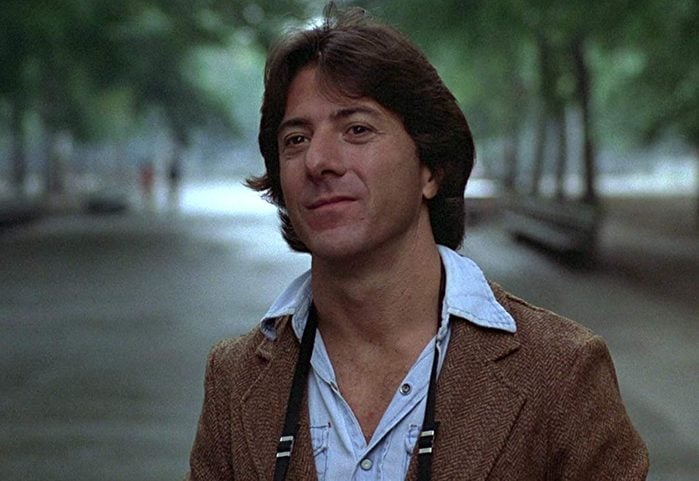
65. Kramer vs. Kramer (1979)
Dustin Hoffman and Meryl Streep (who inexplicably won in the Best Supporting Actress category for a role that was essentially a lead) play a couple who go through a painful separation, leading Hoffman’s character to pick up the pieces. Writer-director Robert Benton’s Kramer vs. Kramer is credited with helping change public opinion on gender roles. While culturally significant, it also happened to steal the Best Picture trophy from one of the greatest achievements in film history…
What Should Have Won Best Picture: Apocalypse Now
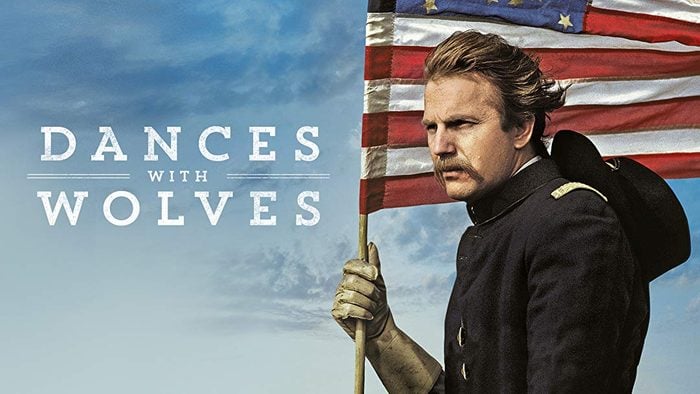
64. Dances with Wolves (1990)
Kevin Costner was on top of the world when he directed, produced and starred in Dances with Wolves, which tells the story of a Union army lieutenant who befriends Sioux Indians on the frontier. While credited with revitalizing the then-tired Western genre and boasting stellar performances from Mary McDonnell and Graham Greene, it’s yet another case of a decent movie beating out an all-time classic for the coveted Best Picture. A lot of people lie about watching these classic movies.
What Should Have Won Best Picture: GoodFellas
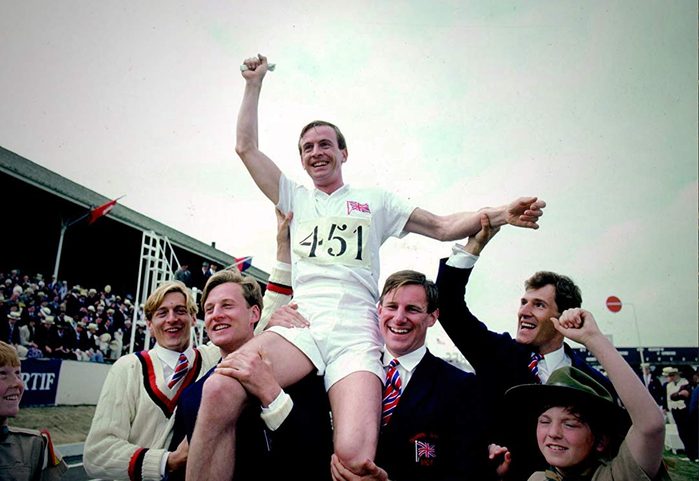
63. Chariots of Fire (1981)
Based on a true story, Hugh Hudson’s Chariots of Fire juxtaposes the lives of two runners competing in the 1924 Paris Olympics: a Christian Scotsman (Ian Charleson) and an English Jew (Ben Cross). The former takes his worship of God very seriously, while the latter is faced with anti-Semitism. The Academy Awards have long been criticized for awarding Best Picture to self-congratulatory and inoffensive films, and this checks both of those boxes. How many people would remember Chariots of Fire three decades later if not for its distinctive Vangelis soundtrack?
What Should Have Won Best Picture: Raiders of the Lost Ark
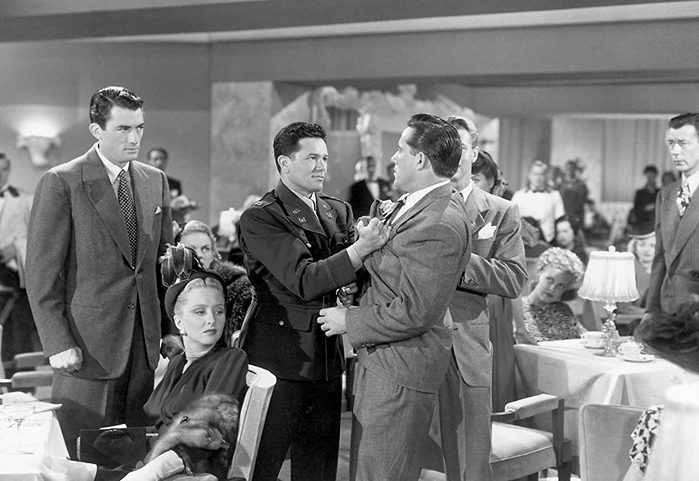
62. Gentleman’s Agreement (1947)
Gregory Peck stars a widowed journalist who poses as a Jew to write a series of articles on anti-Semitism, eventually experiencing racism in forms both overt and subtle. An early example of the “issue” movies that the Academy often favors to this day, Gentleman’s Agreement escapes potential pitfalls by making sharp insights on bigotry—and having the sheer audacity to examine the cracks found in postwar America.
What Should Have Won Best Picture: Great Expectations
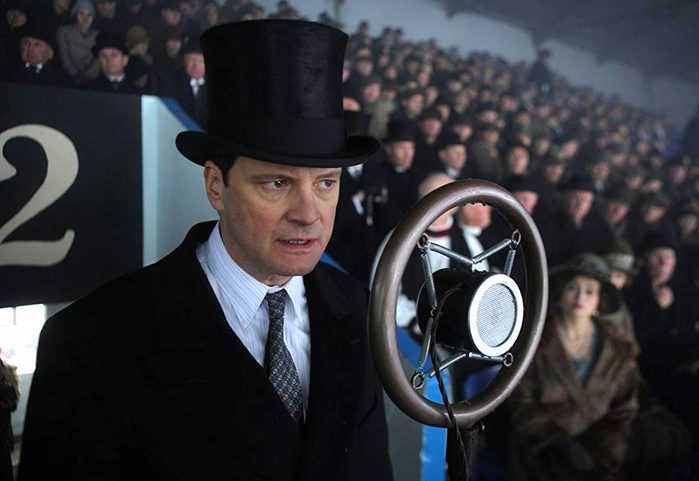
61. The King’s Speech (2010)
Ah, another Weinstein Company picture… Are you noticing a pattern? Held together by memorable performances, striking cinematography and exquisite attention to period detail, this retelling of the relationship between the stammering King George VI and his speech therapist is a great ode to the pleasures of good old-fashioned storytelling. There’s nothing wrong with giving Best Picture to crowd-pleasers like The King’s Speech—it just so happens that Academy voters had at least five other better crowd-pleasers to choose from. Here are 16 of the most historically inaccurate movies ever.
What Should Have Won Best Picture: The Social Network
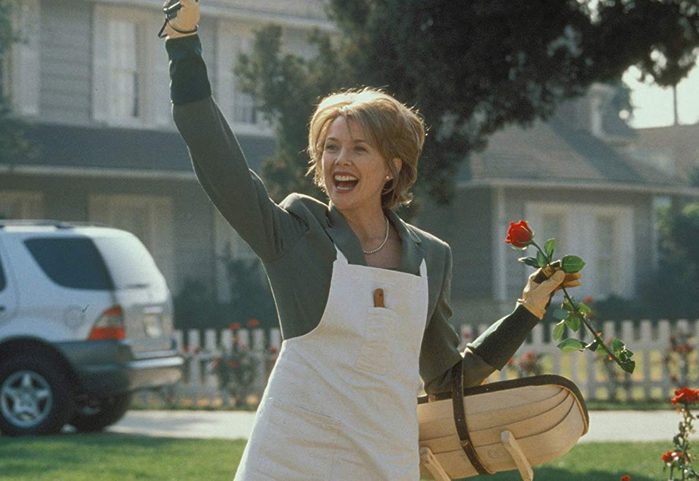
60. American Beauty (1999)
In the wake of allegations against Kevin Spacey, it’s admittedly difficult to watch American Beauty without your flesh crawling. To be fair, this tale of an ad exec’s infatuation with his teenage daughter’s best friend was creepy to begin with (that director Sam Mendes and writer Alan Ball excuse his desires by making sure to tell the audience the best friend is promiscuous doesn’t help matters). Certain aspects of American Beauty haven’t aged well, although Annette Bening’s performance remains a revelation, and the film’s depiction of high school romance still packs a punch.
What Should Have Won Best Picture: The Sixth Sense
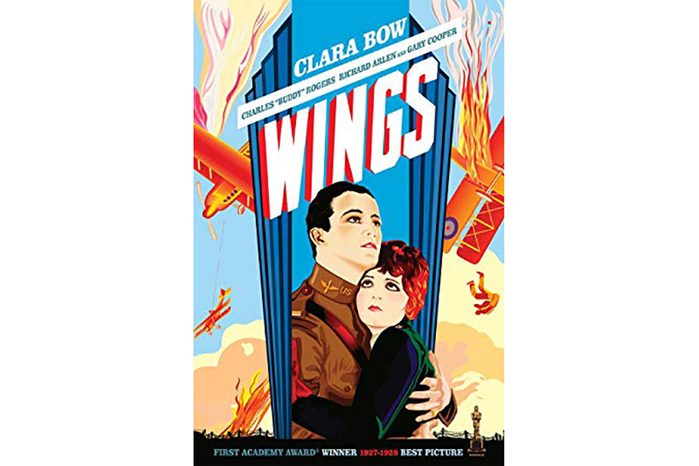
59. Wings (1927-1928)
Two World War I pilots (Richard Arlen and Buddy Rogers) compete for the affections of a beautiful nurse in Wings, the very first film to win an Academy Award for Best Picture. Directed with dazzling invention by William Wellman, Wings plays surprisingly well when seen today… If you’re watching it for the spectacular dogfights rather than the story’s overwrought love triangle. Wings helped sustain the superstardom of Roaring Twenties “it-girl” Clara Bow just as much as it helped launch the career of Gary Cooper, who appears in a small role.
What Should Have Won Best Picture: 7th Heaven
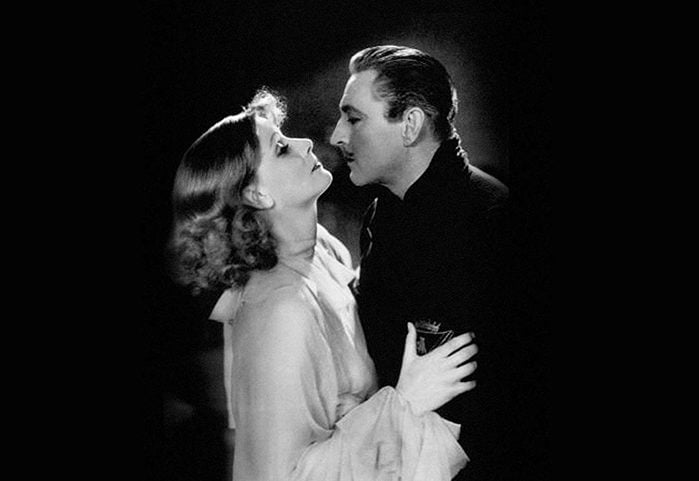
58. Grand Hotel (1931-1932)
Early in Grand Hotel, a minor character describes the titular establishment as “People coming, going. Nothing ever happens.” As it turns out, nothing could be further from the truth. The lives of a jewel thief (John Barrymore), a Russian ballerina (Greta Garbo) and a stenographer (Joan Crawford) intersect in comic, but ultimately unconvincing ways in this Irving Thalberg production. And that’s just a third of the characters in the film. Grand Hotel claim to fame is a line delivered by Garbo: “I want to be alone.”
What Should Have Won Best Picture: Shanghai Express
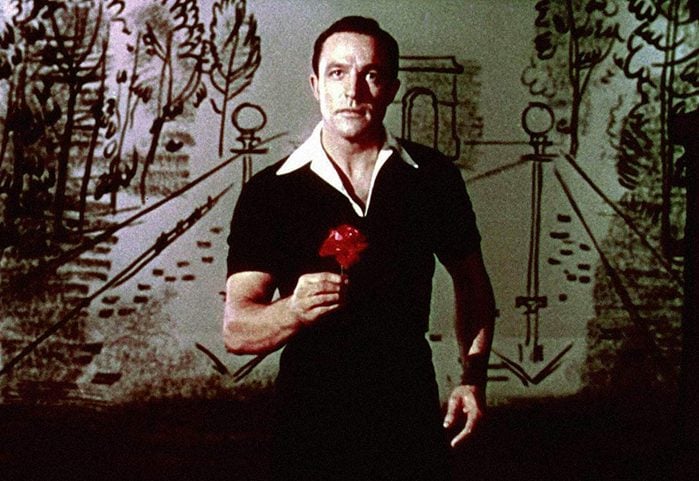
57. An American in Paris (1951)
The lack of narrative discipline in Vincente Minnelli’s An American in Paris is made good by an over-the-top 17-minute ballet sequence in which stars Gene Kelly and Leslie Caron dance before lavish backgrounds based on the works of famous French painters. Despite this, An American in Paris is neither Kelly nor Minnelli’s best musical, and when it comes down to it, an intense family drama starring a young man named Marlon Brando was definitely more deserving of Best Picture…
What Should Have Won Best Picture: A Streetcar Named Desire
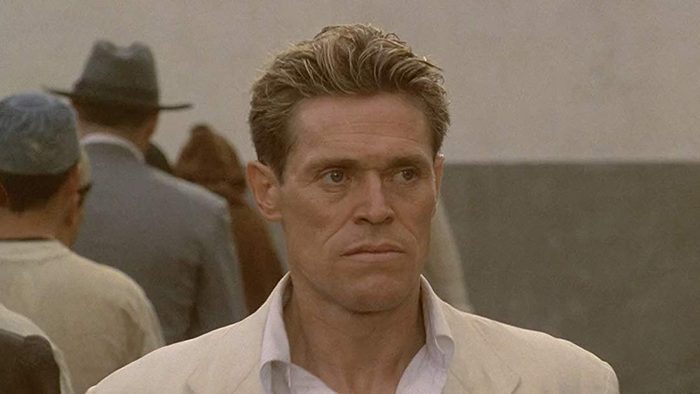
56. The English Patient (1996)
In the Seinfeld episode “The English Patient,” which aired 11 days before The English Patient won Best Picture at the 69th Academy Awards, Elaine’s hatred of the film alienates everyone around her. Granted, it’s easier to admire than it is to actually like, but it sure doesn’t deserve to be loathed. Anthony Minghella’s box office smash, featuring beautiful landscapes and strong performances by Ralph Fiennes, Kristin Scott Thomas, and Juliette Binoche, is a throwback to the sweeping romantic dramas of Hollywood’s Golden Age. These hit movies were books first.
What Should Have Won Best Picture: Fargo
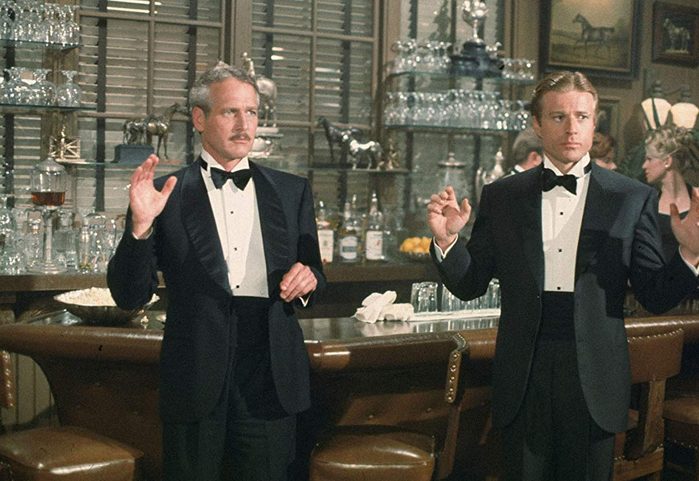
55. The Sting (1973)
George Roy Hill’s The Sting made $160 million at the box office. Adjusted for inflation, that’s a whopping $800 million, making it one of the 25 highest-grossing pictures ever. It’s certainly not hard to understand what drew massive audiences to this comedy caper about two con artists trying to outsmart a mob boss. What’s less understandable is how the charms of Paul Newman and Robert Redford managed beat out the competition for Best Picture. Also nominated that year were The Exorcist, a groundbreaking horror film; Cries and Whispers, an international arthouse classic; and American Graffiti, one of “New Hollywood’s” most successful pictures.
What Should Have Won Best Picture: The Exorcist
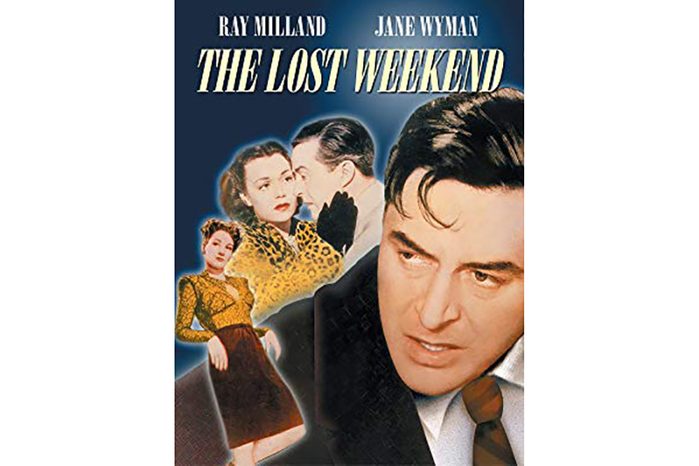
54. The Lost Weekend (1945)
One of Hollywood’s earliest depictions of alcoholism, Ray Milland stars as an alcoholic writer who, in an attempt to break his dependency, has been confined to his apartment for the weekend. Written and directed by the legendary Billy Wilder, memorably intense moments abound, including the sequence in which Milland frantically scours his apartment for a bottle.
What Should Have Won Best Picture: Mildred Pierce
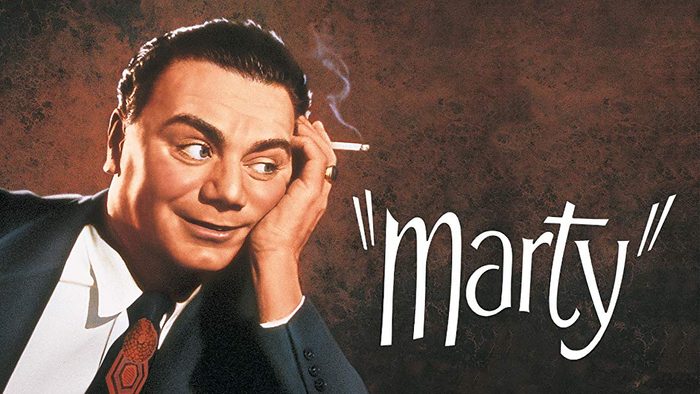
53. Marty (1955)
Running just 94-minutes, Delbert Mann’s Marty is still the shortest film to win Best Picture—and possibly one of the least orthodox choices for the night’s biggest prize. Written by the famed Paddy Chayefsky, this modest tale of a good-natured but loveless butcher (Ernest Borgnine) and the shy schoolteacher he falls for (Betsy Blair) is one of the most moving examples of “kitchen-sink realism,” and continues to strike a chord with viewers to this day.
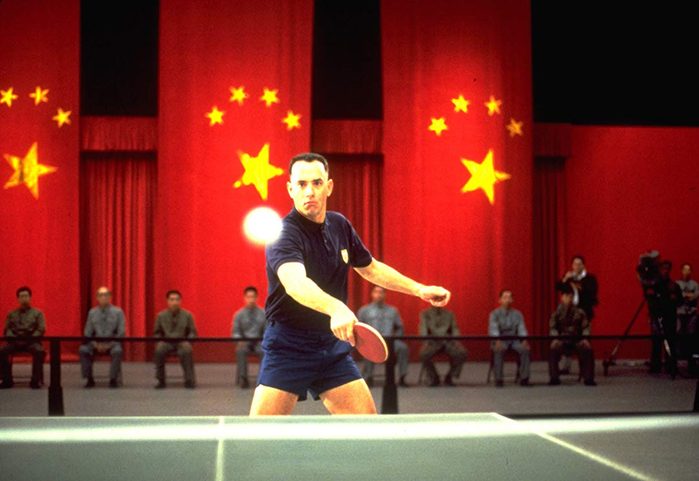
52. Forrest Gump (1994)
Forrest Gump will be remembered for many things. It was 1994’s highest-grossing film; the movie that convinced America Tom Hanks is a better dramatic actor than he is a comedic one; and the inspiration for the laughable Bubba Gump Shrimp Company restaurant chain. It feels more artificial than ever before, but Forrest Gump is also endlessly quotable and re-watchable, and nostalgic to a fault. Slow-witted but compassionate, and always looking forward, Forrest Gump is the American hero almost everyone has a soft spot for, whether they like to admit it or not. The world’s leading comedians share their favorite jokes ever.
What Should Have Won Best Picture: Pulp Fiction
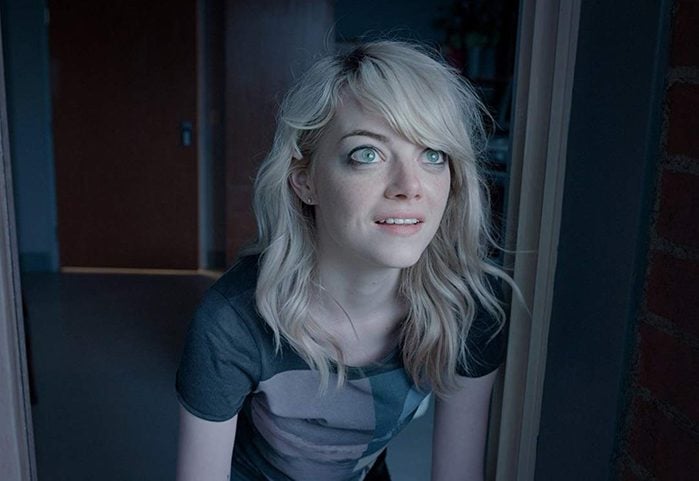
51. Birdman (2014)
Arguably the most divisive Best Picture winner of the last decade, Birdman wants to be seen as capital-A “Art” and, sometimes, even succeeds. Alejandro González Iñárritu’s tale of a washed-up actor trying to regain his artistic credibility on Broadway is jam-packed with so many narrative and technical oddities that it’s surprising it was even a frontrunner for Best Picture at all. An equally groundbreaking (but more modest) film was nominated that year as well, but Academy voters were more attracted to Birdman‘s show-stoppers. At least we have it to thank for reviving Michael Keaton’s career.
What Should Have Won Best Picture: Boyhood
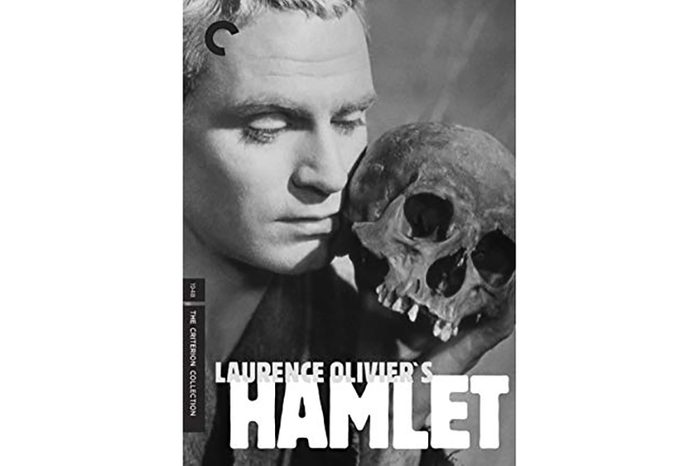
50. Hamlet (1948)
Using the original text, Laurence Olivier’s adaptation of William Shakespeare’s most acclaimed work is essentially a filmed play. The great actor, however, would make up for his lack of visual inventiveness with a performance that stands as one of the most iconic in film history. Later Shakespeare adaptations by Orson Welles and Akira Kurosawa would eschew faithfulness to the text and put more emphasis on compelling imagery, but this will forever remain the definitive version. You probably didn’t know these 21 everyday phrases were invented by Shakespeare.
What Should Have Won Best Picture: The Treasure of the Sierra Madre
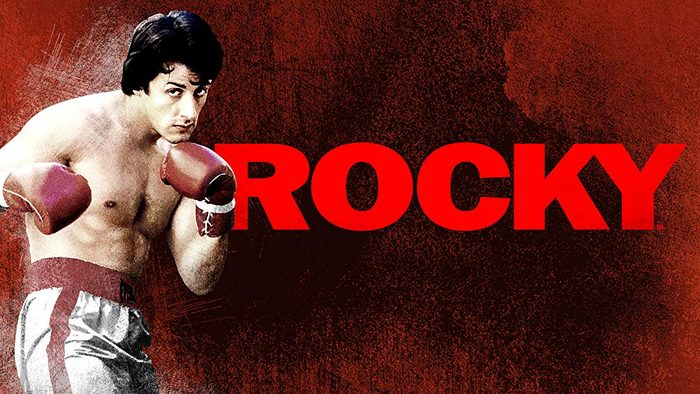
49. Rocky (1976)
Once upon a time, Sylvester Stallone was touted as the next Marlon Brando. For Rocky, the “Italian Stallion” received Best Actor and Best Original Screenplay nods in this tale of a working-class boxer who gets a shot at the world heavy championship—and better yet, at love, with a shy pet shop cashier (Talia Shire). The film’s most famous moments—chief among them, the training montage—have become sports movie clichés at this point; neither does it help that its sequels turned the character of Rocky Balboa into a laughing stock. Still, the original movie is a winner, even if (SPOILERS!) he does lose at the end.
What Should Have Won Best Picture: Taxi Driver
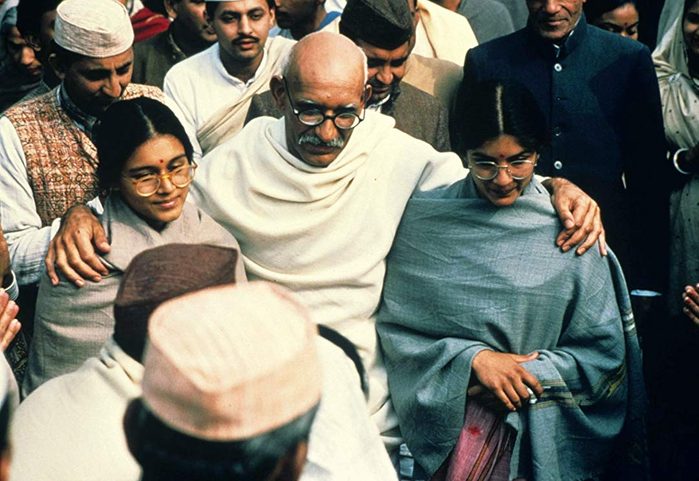
48. Gandhi (1982)
It’s no secret that Academy voters love biopics: these character-driven period pieces tend to be lavish productions that are, with some notable exceptions, fairly entertaining. Richard Attenborough’s Gandhi is a true biopic in every sense of the word, bringing the story of Indian political and spiritual leader Mahatma Gandhi to life in exceptional detail. It’s a testament to Sir Ben Kingsley’s towering performance as Gandhi that more than 30 years later, it’s still his most famous role. Watch out for a short appearance by a young Daniel Day-Lewis as one of the South African goons who hurl vitriol at Gandhi.
What Should Have Won Best Picture: E.T. the Extra-Terrestrial
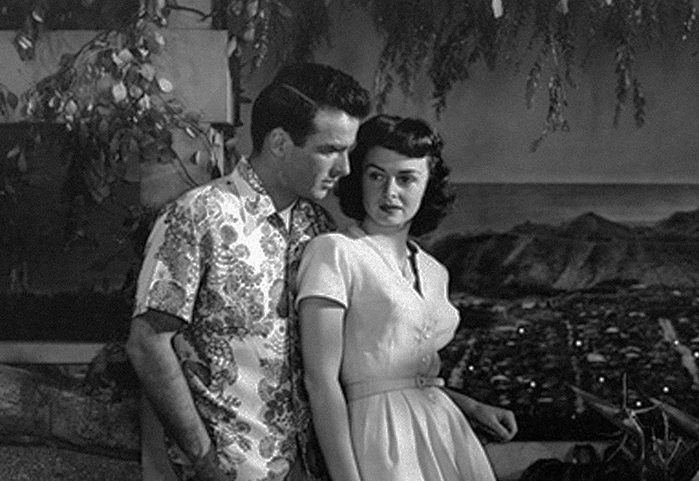
47. From Here to Eternity (1953)
Following the lives of three U.S. Army soldiers (Burt Lancaster, Montgomery Clift, and Frank Sinatra) in the lead-up to the Japanese attack on Pearl Harbor in 1941, there’s a palpable sense of doom that pervades Fred Zinnemann’s From Here to Eternity. Every moment and conversation is given added weight because the audience knows exactly what’s coming. From Here to Eternity’s surprisingly frank depiction of sex and infidelity also predicts the sexual revolution of the Sixties. Its ending, featuring the two women in the film (Deborah Kerr and Donna Reed) is quietly devastating.
What Should Have Won Best Picture: Roman Holiday
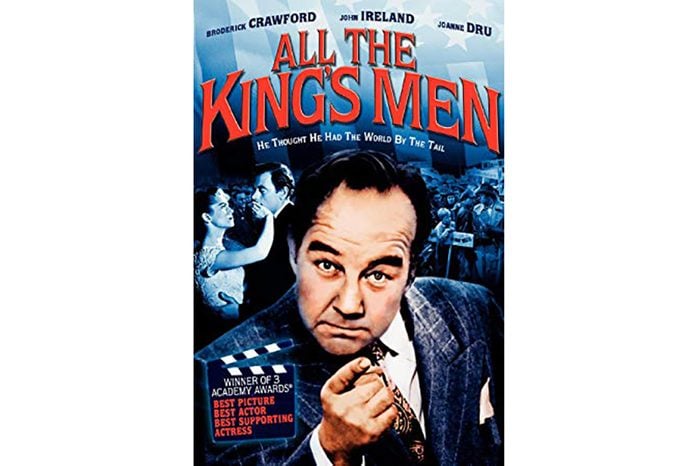
46. All the King’s Men (1949)
Based on the Pulitzer Prize-winning novel by Robert Penn Warren, Robert Rossen’s All the King’s Men details the rise and fall of Willie Stark (Broderick Crawford), a politician unsubtly modeled after Louisiana governor Huey Long. Stark wins the loyalty of his voters by lowering the poverty level and improving the school system, but as discovered by a local journalist, he’s just as corrupt and power-hungry as his predecessors. All the King’s Men is required viewing in this age of demagoguery. (Do yourself a favor and avoid the 2006 remake.)
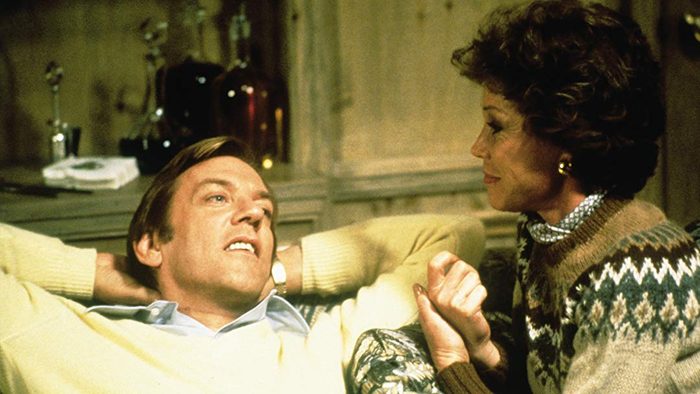
45. Ordinary People (1980)
When the eldest son of an upper-middle-class family dies in a sailing accident, his father Calvin (Donald Sutherland), mother Beth (Mary Tyler Moore) and troubled younger brother Conrad (Timothy Hutton, in an Academy Award-winning performance) are sent into a tailspin. Ordinary People, Robert Redford’s directorial debut, is memorable for its powerful portrayal of grief and loss, and Moore is fantastic as the complex matriarch. But to award Ordinary People over what many consider the best film of the decade was (and remains) a controversial decision.
What Should Have Won Best Picture: Raging Bull
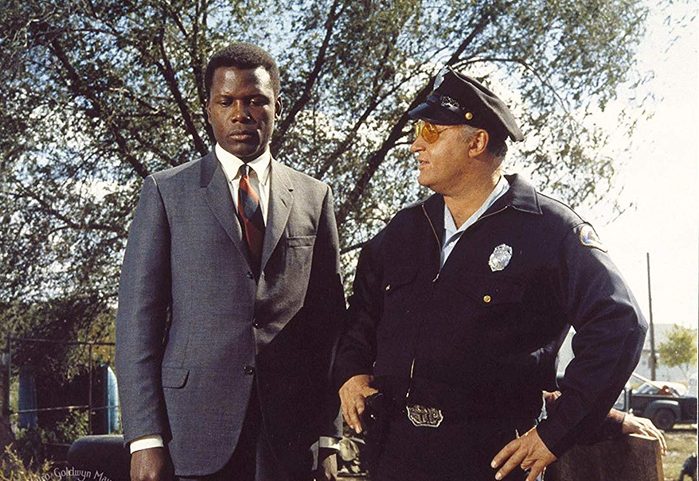
44. In the Heat of the Night (1967)
Directed by Norman Jewison, In the Heat of the Night stars Sidney Poitier as Philadelphia detective Virgil Tibbs, who must solve a murder case with Sheriff Gillespie (Rod Steiger), the bigoted lawman of Sparta, Mississippi. The anti-racist stance of In the Heat of the Night was a hit with Academy voters, and its “odd couple” approach to the cop genre was an inspiration for many action movies to follow. It just so happens that another American film captured the zeitgeist even better…
What Should Have Won Best Picture: The Graduate
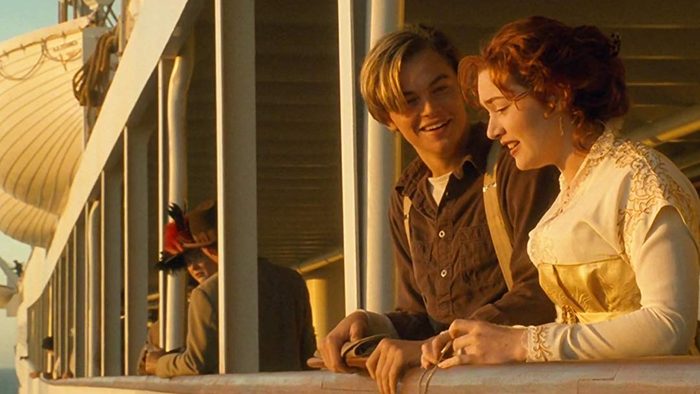
43. Titanic (1997)
Titanic tempers James Cameron’s strengths as a director with his serious limitations as a writer. For every spectacular action sequence, there’s an unbearably cheesy line of dialogue. The sheer scope of the film is exhilarating, but the romance at the heart of it, which captivated audiences all over the world at the time, hasn’t aged well. It’s a pity, as all James Cameron needed to do was hire a proper writer. (Well, that, and get rid of that Celine Dion song.) Discover these 10 intriguing pieces of Titanic trivia.
What Should Have Won Best Picture: L.A. Confidential

42. Spotlight (2015)
Directed by Tom McCarthy and starring Michael Keaton, Rachel McAdams, and Mark Ruffalo, Spotlight tells the true story of the Pulitzer Prize-winning Boston Globe investigation that uncovered decades of sexual abuse in the Catholic Church. Along with All the President’s Men, Spotlight is one of the definitive films about journalism and a reminder of the media’s unique role in holding figures of authority accountable.
What Should Have Won Best Picture: Mad Max: Fury Road
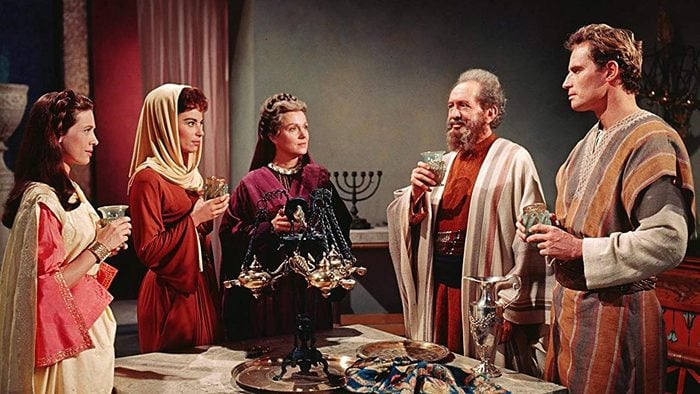
41. Ben-Hur (1959)
Its spectacular chariot scene is justifiably famous, but there’s more to Ben-Hur than gigantic sets and thousands of extras. Over the course of a whopping 212 minutes, director William Wyler and screenwriter Karl Tunberg follow the trials and tribulations of wealthy merchant Judah Ben-Hur (Charlton Heston), culminating in an encounter with Jesus Christ himself. Even more fascinating is Judah’s sexually ambiguous relationship with childhood friend Messala (Stephen Boyd).
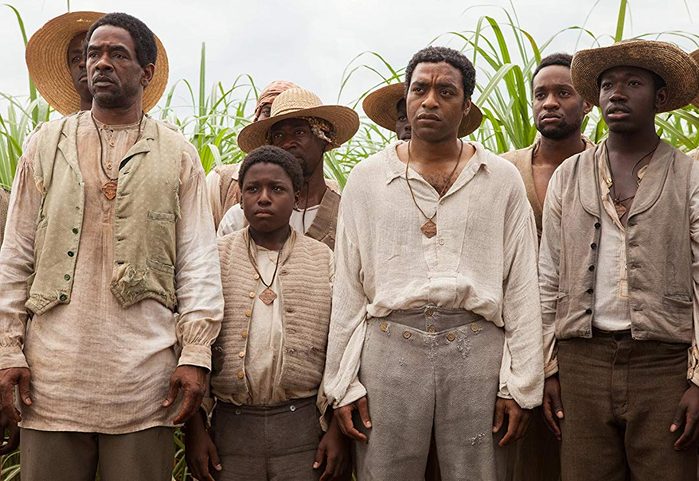
40. 12 Years a Slave (2013)
12 Years a Slave makes for often brutal viewing, but it’s hard to look away completely. That’s because director Steve McQueen’s adaptation of the memoir by Solomon Northup—a free-born African American who was drugged, kidnapped and sold as a slave in New Orleans—is too riveting a narrative to ignore. 12 Years a Slave also introduced the world to Lupita Nyong’o in one of the most impressive debuts in recent memory.
What Should Have Won Best Picture: Her
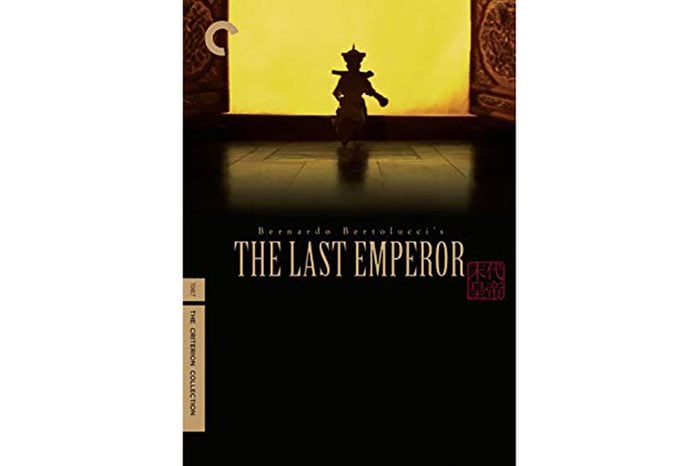
39. The Last Emperor (1987)
A decades-spanning, multifaceted character study of Emperor Pu Yi, The Last Emperor is perhaps the most serious film to ever win Best Picture. Bernardo Bertolucci’s epic, featuring an international cast and astonishing craftsmanship in recreating Qing Dynasty China, was up against the more popular Fatal Attraction and Moonstruck. It was admirable for Academy voters to choose artistry over popularity, though The Last Emperor‘s inspired sequences are interspersed with long stretches in which the narrative grinds to a halt.
What Should Have Won Best Picture: Broadcast News
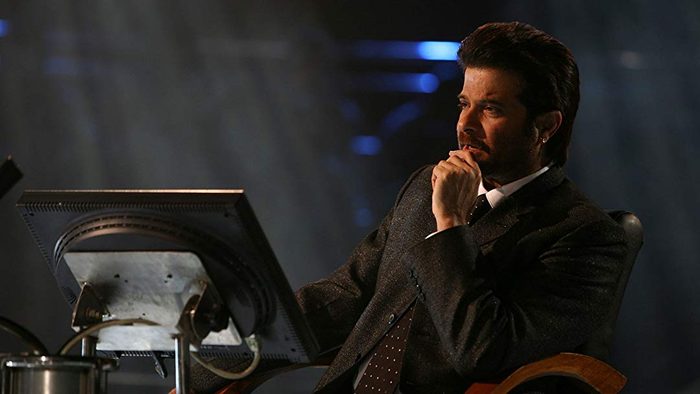
38. Slumdog Millionaire (2008)
Almost destined for a direct-to-video release, the unlikely success of Danny Boyle’s Slumdog Millionaire mirrors that of its protagonist, Jamal Malik. As an impoverished contestant on the Indian version of Who Wants to Be a Millionaire, Malik revisits the most formative moments of his life to find the answer to each question—all while trying to win back his childhood love. This rags-to-riches romance shouldn’t work, and yet it does. The kinetic imagery, A.R. Rahman’s exhilarating soundtrack, and the jam-packed plot make Slumdog Millionaire a 50s-style Hollywood romance for the multicultural, tech-obsessed 21st century.
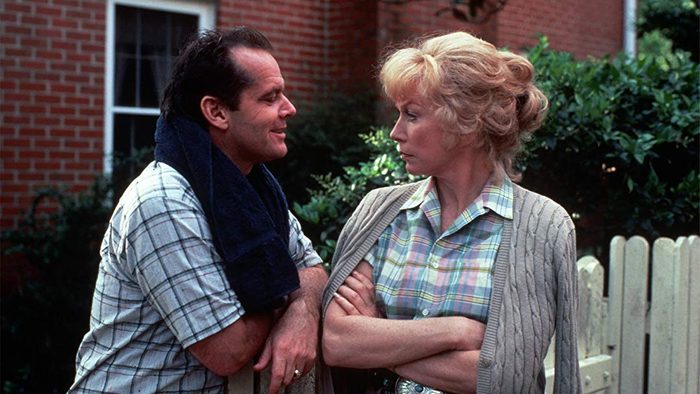
37. Terms of Endearment (1983)
Condensing 30 years of family history into 132 minutes is no small feat. Leave it to James L. Brooks and his all-star cast (Shirley MacLaine, Debra Winger, Jack Nicholson, Danny DeVito, Jeff Daniels and John Lithgow) to convincingly bring to life the story of a warring mother and daughter, and the men in their lives. The film follows its own episodic style, until one plot twist that earns the film its legendary status as one of the most famous tearjerkers of all time—with good reason. Here are some other tearjerker movies for when you need a good cry.
What Should Have Won Best Picture: The Right Stuff
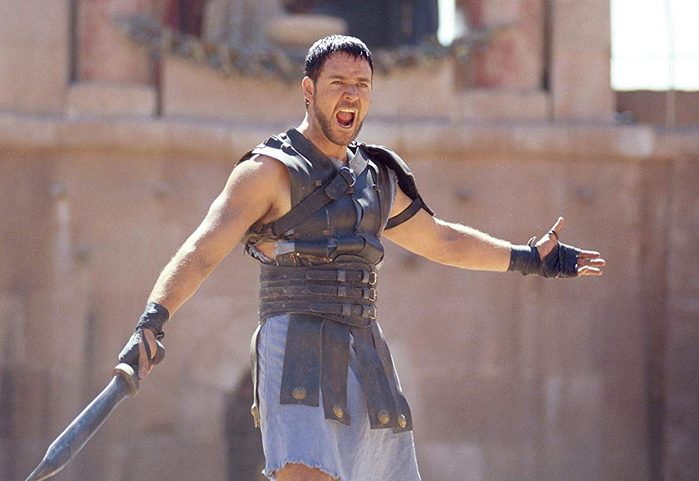
36. Gladiator (2000)
Sword-and-sandal epics were out of touch at the tail end of the 20th century—and then Gladiator happened. Ridley Scott’s epic tale of revenge in Ancient Rome launched a wave of copycat historical dramas, but none could match Gladiator’s emotional impact. Case in point: when Russell Crowe’s enslaved former general, Maximus, takes off his mask and reveals his identity to Joaquin Phoenix’s baddie emperor in front of a coliseum full of Romans, it’s a quintessential “Hell yeah!” moment in cinema. Gladiator is big-budget Hollywood filmmaking done right.
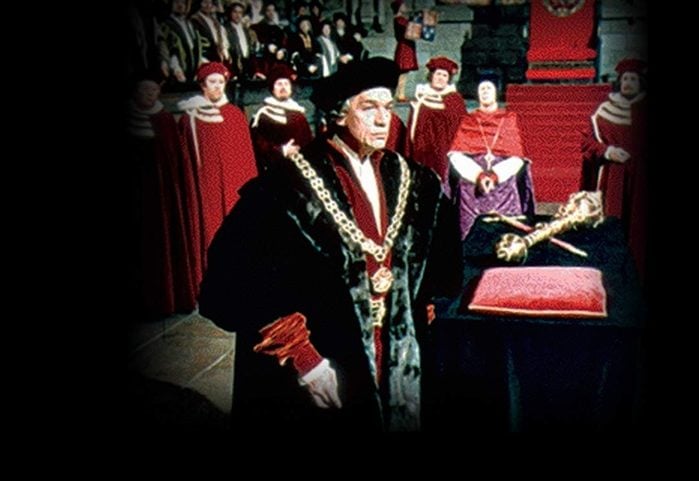
35. A Man for All Seasons (1966)
Although he won an Academy Award for his performance, Paul Scofield’s award-winning turn as Sir Thomas More in A Man for All Seasons remains one of the most underrated performances of all time. It’s his seemingly effortless delivery that brings Fred Zinnemann’s biographical drama to life, helped by glorious Technicolor cinematography and a remarkable screenplay by Robert Bolt. Truly a neglected gem among Best Picture winners.
What Should Have Won Best Picture: Who’s Afraid of Virginia Woolf?
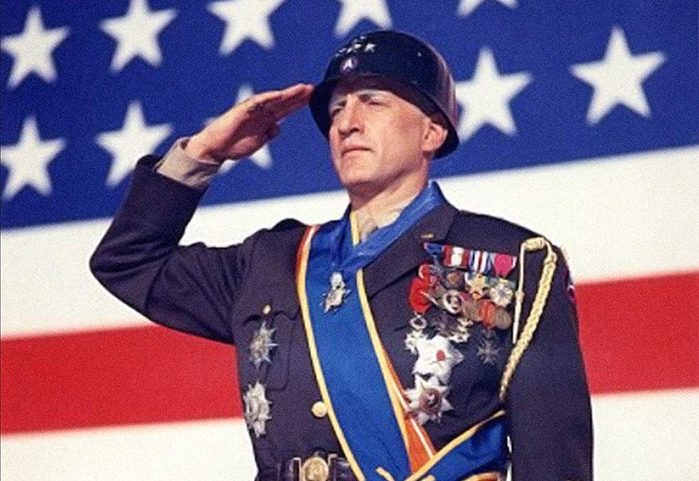
34. Patton (1970)
One of the best things about Franklin J. Schaffner’s Patton is its old-school approach. Other than its radical opening scene—George C. Scott as George Patton delivering a rousing speech in front of a giant American flag to unseen troops—Patton is your standard biopic. What makes it stand out is the fact that it’s exceptionally well-acted and thoughtfully written, providing insights into many of the World War II general’s most famous gaffes (including a real-life incident when he smacked a shell-shocked soldier) as well as the German enemy.
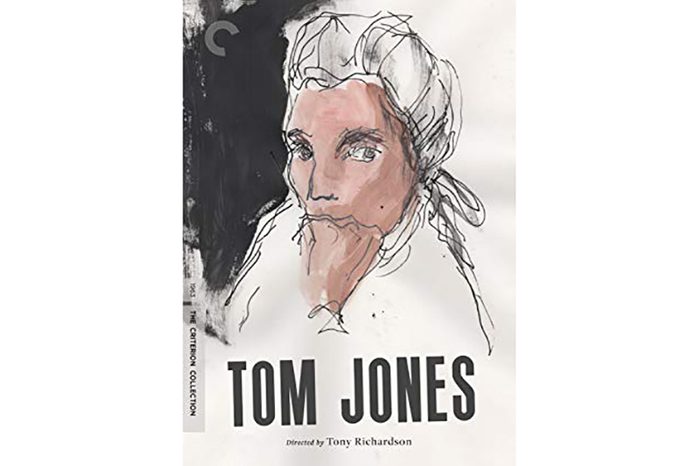
33. Tom Jones (1963)
Released alongside the famous kitchen-sink dramas of British New Wave cinema, Tom Jones sees director Tony Richardson and playwright John Osborne adapt the classic novel by Henry Fielding. Half social satire and half picaresque comedy, the film follows a fatherless country boy (Albert Finney, in a breakthrough performance) on his hilarious misadventures, all while trying to win the affection of his beloved Sophie Western (Susannah York).
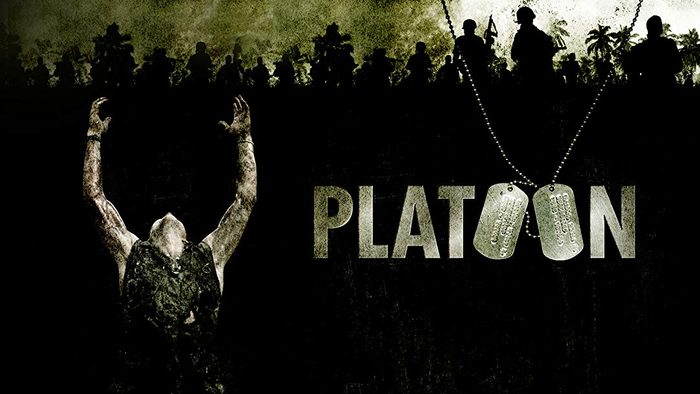
32. Platoon (1986)
“Death? What y’all know about death?” asks Sgt. Barnes (Tom Berenger) to a room full of young, pot-smoking soldiers, the scars on his face more evident than ever before. Oliver Stone’s Platoon is really about the loss of innocence—of both its protagonist, Chris Taylor (Charlie Sheen) and an entire generation of kids. And like most Vietnam War films, Platoon refuses to give easy answers, choosing instead to look back on American involvement in Vietnam with confusion and remorse.
What Should Have Won Best Picture: Hannah and Her Sisters
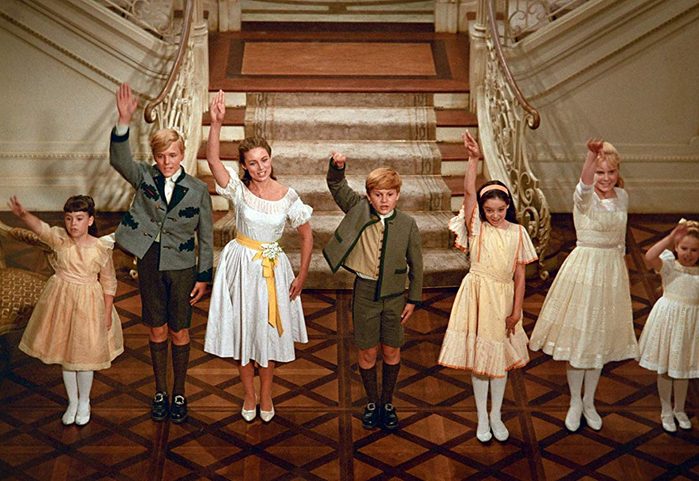
31. The Sound of Music (1965)
Released at the tail end of Hollywood’s Golden Age, Robert Wise’s The Sound of Music is one of the highest-grossing movies of all time. Audiences all over the world fell in love with Maria (Julie Andrews), Captain Georg (Christopher Plummer) and the seven von Trapp children. Handsomely shot, expertly edited, and written to appeal to both adults and children, The Sound of Music is a crowd-pleasing blockbuster done right. Not convinced it’s withstood the test of time? Just try not to hum along the next time you hear a rendition of “My Favourite Things.” We dare you! Learn about the three things that are never allowed in Disney movies.
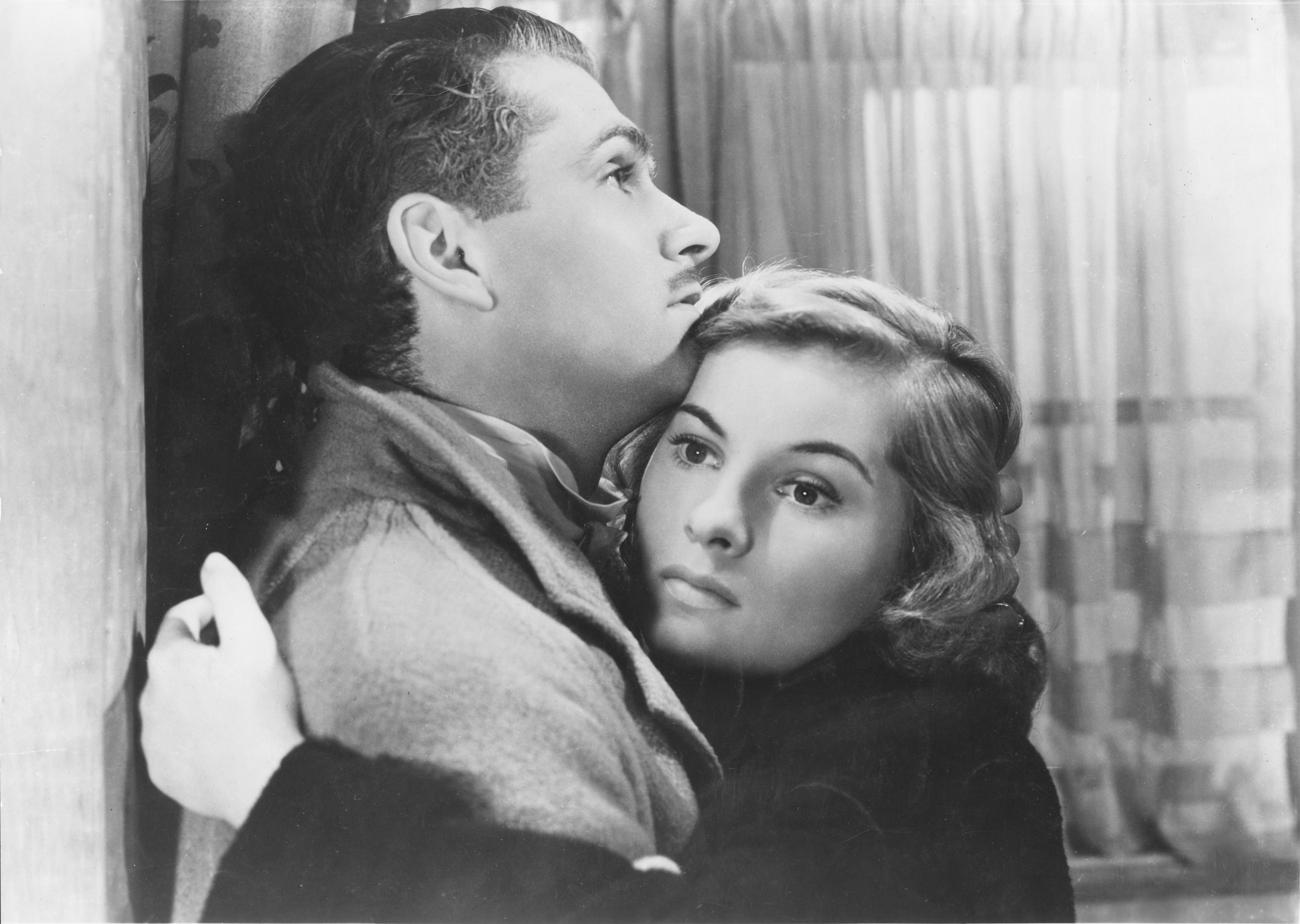
30. Rebecca (1940)
Based on the 1938 novel by Daphne du Maurier, Rebecca was Alfred Hitchcock’s introduction to Hollywood. In this gothic tale, a young woman (Joan Fontaine) marries a wealthy widower, Maxim de Winter (Laurence Olivier), and moves into his large mansion. She soon learns that the memory of Maxim’s late wife, Rebecca, still lingers in the minds of her new husband and his deranged housekeeper, Mrs. Danvers. Before Hitchcock became the Master of Suspense, he had already mastered the suspension of disbelief.
What Should Have Won Best Picture: The Great Dictator
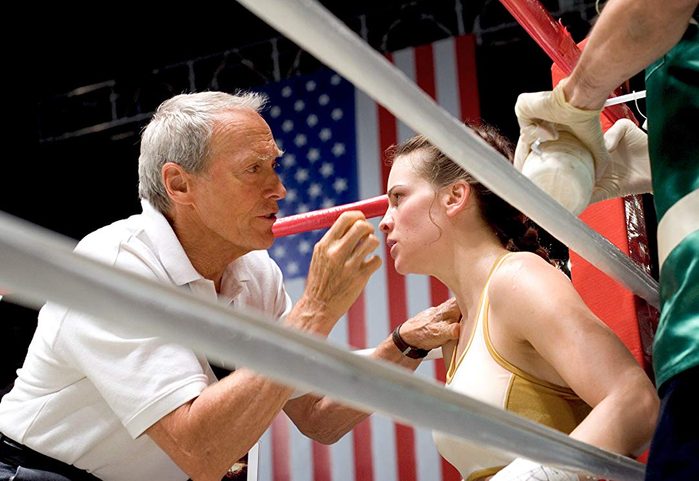
29. Million Dollar Baby (2004)
Is Million Dollar Baby one of the most depressing films ever made? Yes. Is Million Dollar Baby Oscar-fodder masquerading as a gritty sports drama? No. Clint Eastwood, Hilary Swank and Morgan Freeman imbue their desperate characters—and the sport of boxing—with such humanity, it’s easy to want to look away. Eastwood’s unpretentious, back-to-basics approach to storytelling is equally impressive. If he had walked away from filmmaking after this, he would’ve been remembered as a modern master.

28. The Hurt Locker (2009)
“The rush of a battle is often a potent and lethal addiction, for war is a drug,” says a title card before Kathryn Bigelow’s gritty film about an Iraq War Explosive Ordnance Team. The Hurt Locker’s lack of narrative structure—it consists mostly of vignettes, and there’s virtually no character arc—makes it a radical choice for Best Picture, but that’s largely its point. By depicting the same situations over and over again, The Hurt Locker achieves an unbearable sense of tension. And then the bombs go off.
What Should Have Won Best Picture: Avatar
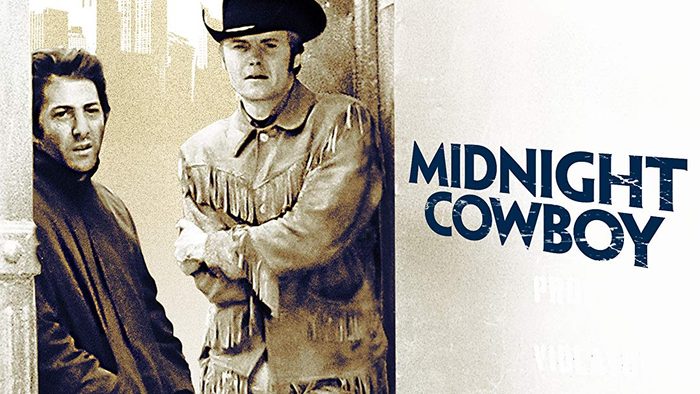
27. Midnight Cowboy (1969)
Is there a more iconic film about destitution than Midnight Cowboy? John Schlesinger’s two-hour bummer of a movie follows the unlikely friendship between greasy con artist Ratso Rizzo (Dustin Hoffman) and male prostitute Joe Buck (Jon Voight). Every scene is drenched with cold sweats, and the death of the Swinging Sixties hangs like a dark cloud over the entire production. Midnight Cowboy shone a spotlight on the dark underbelly of America that audiences seldom saw in 1969.
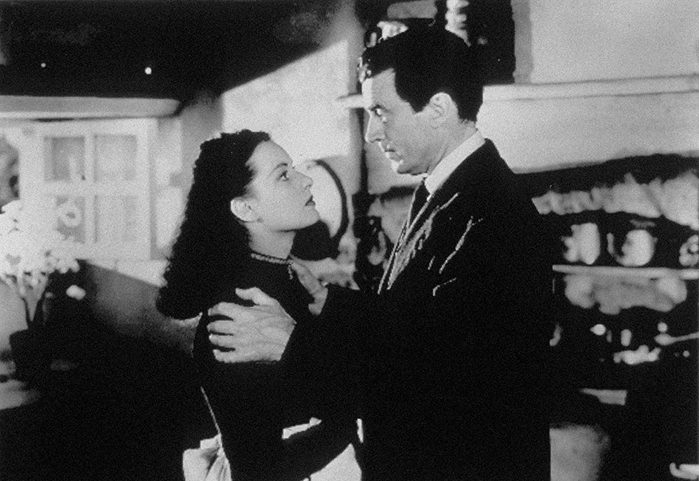
26. How Green Was My Valley (1941)
Director John Ford examines the passage of time in How Green Was My Valley, one of his most humane and surprising dramas. Spanning five decades, the film tells the epic story of the Morgans, a Welsh mining family who struggle to survive as values once deemed important slowly change or are lost completely. While How Green Was My Valley infamously beat Citizen Kane for Best Picture, it’s a grand achievement in its own right.
What Should Have Won Best Picture: Citizen Kane
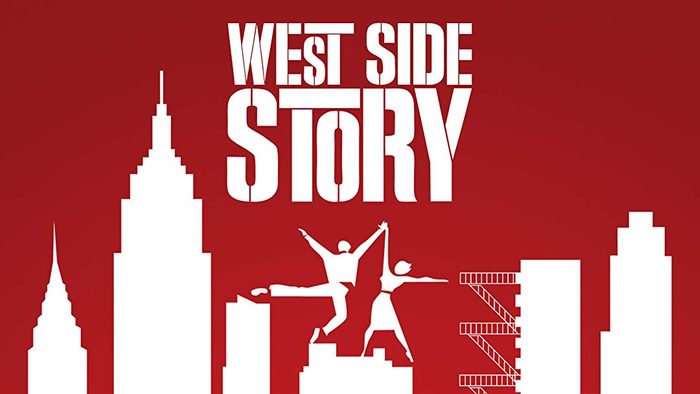
25. West Side Story (1961)
Featuring Natalie Wood’s most memorable performance and some of the most inventive choreography ever captured on celluloid, Jerome Robbins and Robert Wise’s West Side Story is a great film on its song and dance numbers alone. But by transporting Romeo and Juliet to New York City’s Lincoln Square neighborhood, it becomes an all-time classic. Incorporating issues like race, crime and social class, West Side Story raised the bar for musicals and Shakespeare adaptations for decades to come. Discover 16 little-known facts about the greatest songs of all time.
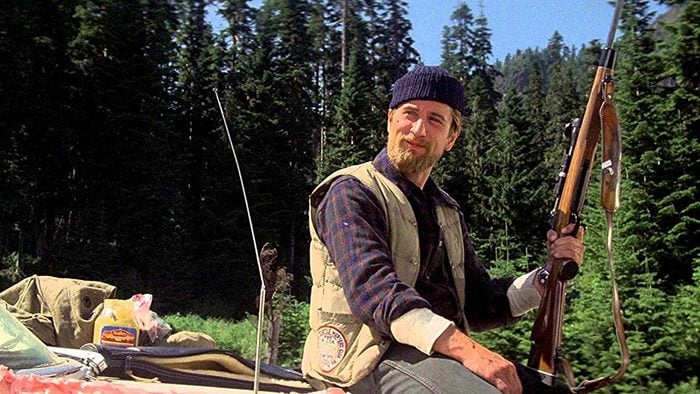
24. The Deer Hunter (1978)
Michael Cimino’s The Deer Hunter begins with a wedding and ends with a funeral. It tells the story of three friends (Robert De Niro, Christopher Walken, and John Savage) who enlist to fight in Vietnam. A sequence in which they are forced to play Russian roulette with their Viet Cong captors is both The Deer Hunter’s most controversial scene and its most important. It’s a work of fiction, but that doesn’t matter: no cinematic moment better captures the irrational nature of war and its soul-crushing aftermath.
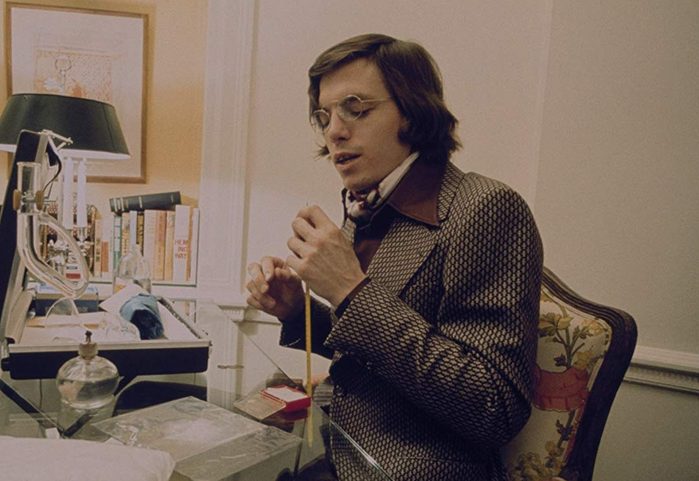
23. The French Connection (1971)
In a decade filled with movies about mobsters, vigilante taxi drivers and teenagers with psychopathic tendencies, this film about a drug-smuggling operation and the cops (Gene Hackman and Roy Scheider) who vow to stop it might be the most nihilistic of them all. Much has been made about The French Connection’s famous car chase sequence, but the film’s real strength is director William Friedkin’s devotion to realism. In the world of The French Connection, tailing a suspect is just as dangerous as getting into a shootout.
What Should Have Won Best Picture: A Clockwork Orange
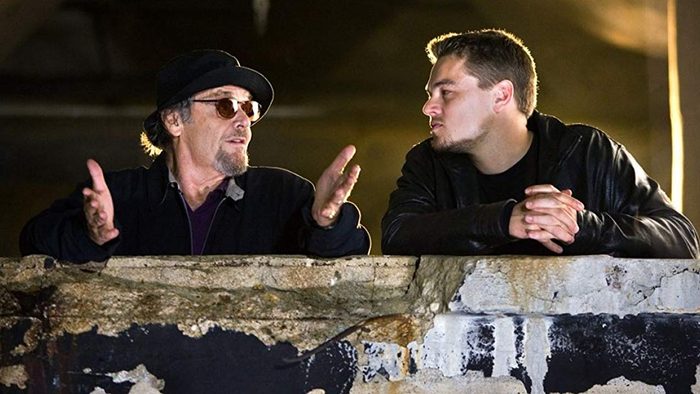
22. The Departed (2006)
People who complain about Martin Scorsese’s bad luck with the Oscars are doing a disservice to The Departed. Handing Best Picture to his Boston gangland epic wasn’t a last-ditch effort to right previous wrongs: it was a no-brainer. No other mainstream movie in 2006 was as unapologetically thrilling and hilarious as The Departed. Like Jack Nicholson’s crazed mob boss Frank Costello throwing handfuls of cocaine to the accompaniment of a Gaetano Donizetti opera, The Departed elevates low lives to high art.
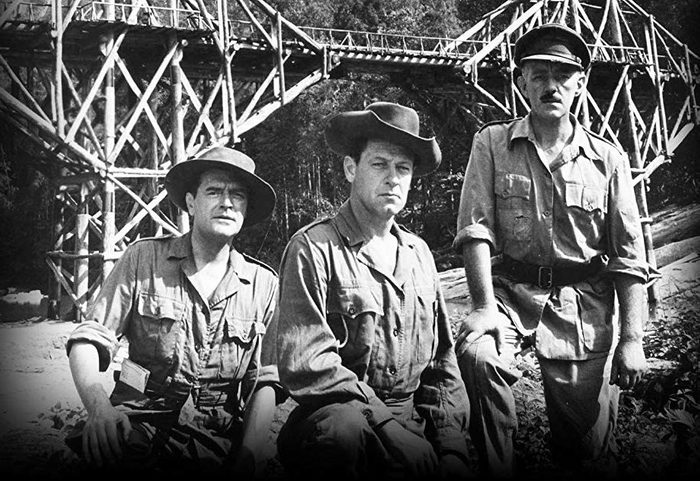
21. The Bridge on the River Kwai (1957)
The Bridge on the River Kwai is the first David Lean film to make our countdown, but it won’t be the last. Predominantly set in a Japanese prisoner-of-war camp in Burma during World War II, this adaptation tells the story of captured Lieutenant Colonel Nicholson (Alec Guinness) who, when tasked with constructing a bridge over the titular river, plays psychological tug of war with the commandant, Colonel Saito (Sessue Hayakawa). Exploring themes of honor, class and race, The Bridge on the River Kwai is one of the most thrilling epics to ever come out of Hollywood.
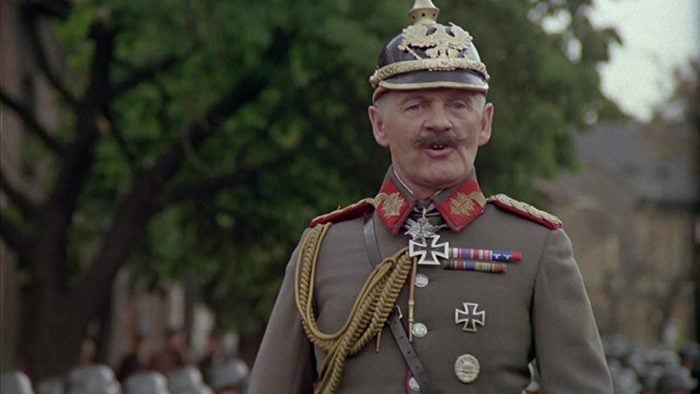
20. All Quiet on the Western Front (1929-1930)
One of the greatest anti-war films ever made, Lewis Milestone’s All Quiet on the Western Front has dated incredibly well. Based on Erich Maria Remarque’s classic novel of the same name, the 1930 Best Picture winner tells the story of Paul Bäumer, a German student who finds himself on the front lines of World War I. The film’s violent battle scenes are clinical and merciless, and its message doesn’t pull any punches.
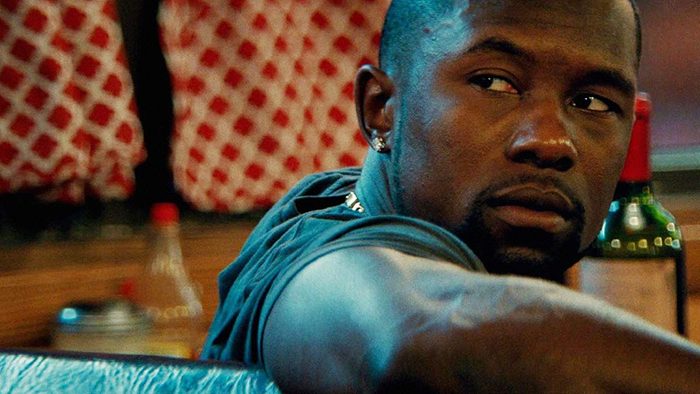
19. Moonlight (2016)
Groundbreaking in subject matter and intimate in form, Moonlight is a shining example of what contemporary film can be. Barry Jenkins’ moving sophomore feature is set in Miami and presents Chiron, a gay African-American, in three periods of his life: elementary school, high school, and adulthood. Chiron’s dreams, desires and sense of place are always front and center. Moonlight’s specificity can speak volumes to males everywhere: to men of color, to gay men, or to men who simply hide their true selves from the world.
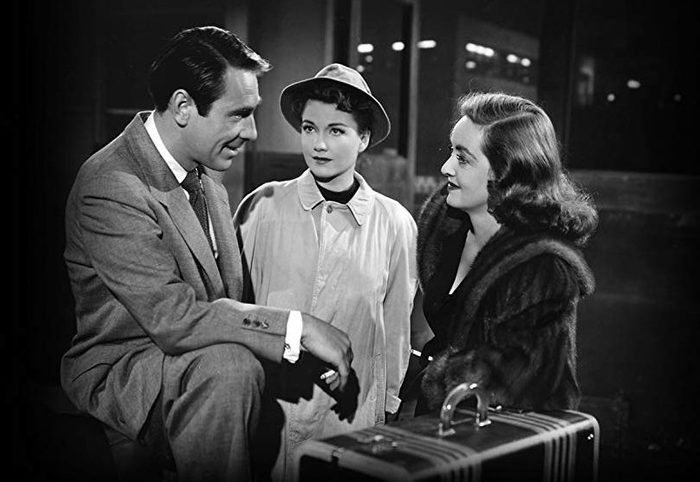
18. All About Eve (1950)
Nominated for a whopping 14 Academy Awards (it won six), writer-director Joseph L. Mankiewicz’s All About Eve grants audiences an inside look at the backstage dramas of Broadway. After aging star Margo Channing (Bette Davis) takes aspiring actress Eve Harrington (Anne Baxter) under her wing, she soon learns that the seemingly naïve young woman has her own devious plans. Like its fellow Best Picture nominee, Sunset Boulevard, All About Eve explores the narcissism and deceit that comes with wanting to be a celebrity and is absolutely jam-packed with famous one-liners.
What Should Have Won Best Picture: Sunset Boulevard
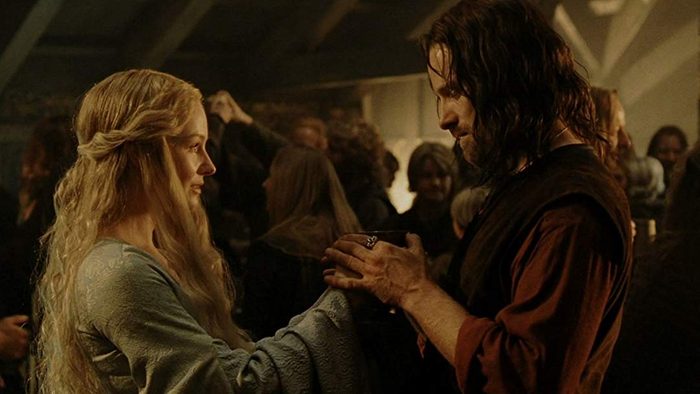
17. The Lord of the Rings: The Return of the King (2003)
Peter Jackson’s ill-fated decision to expand J.R.R. Tolkien’s The Hobbit into three overlong films makes The Return of the King feel even more special. The only way to conclude a trilogy that revolutionized the visual effects industry and bring previously “unfilmable” novels to the silver screen was to go big, and that’s just what Jackson and company did. Got room for one big battle scene? Let’s make it three. Have time to watch one grand finale? Let’s film four endings and show them all. Few films will ever be this unapologetically over-the-top again.
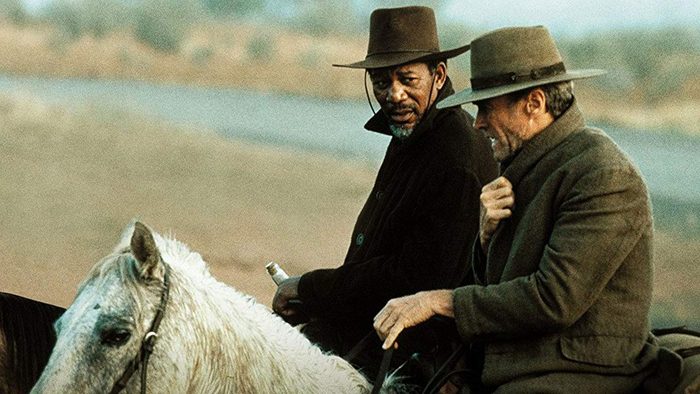
16. Unforgiven (1992)
Clint Eastwood turned the Western genre upside down with 1992’s Unforgiven. When a group of prostitutes put up a bounty for two violent men, reformed outlaw William Munny (Eastwood) travels with his old friend Ned Logan (Morgan Freeman) and an eager young gunslinger to collect. The town’s brutal sheriff (Gene Hackman) makes it his mission to stop them. Unforgiven is a meditative film about the aftermath of violence, the downsides of myth-building, and what happens when the bad guys are the only ones left standing after a gunfight.
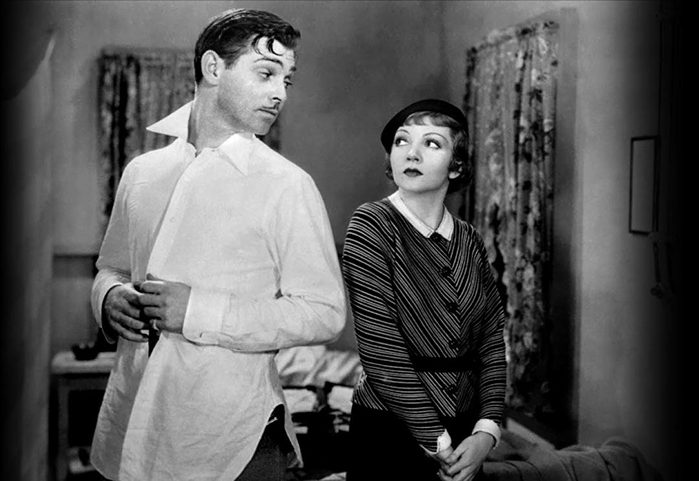
15. It Happened One Night (1934)
Set against the backdrop of the Great Depression, Frank Capra’s It Happened One Night tells the story of a spoiled heiress (Claudette Colbert) who bolts from her own marriage and falls for a broke reporter (Clark Gable) as they travel cross-country. In true romantic comedy fashion, their relationship is initiated by an innocent bit of blackmail. Filled with irresistible chemistry, hilarious dialogue and a few eyebrow-raising moments, It Happened One Night is the kind of film that reminds viewers why they fell in love with the movies in the first place.
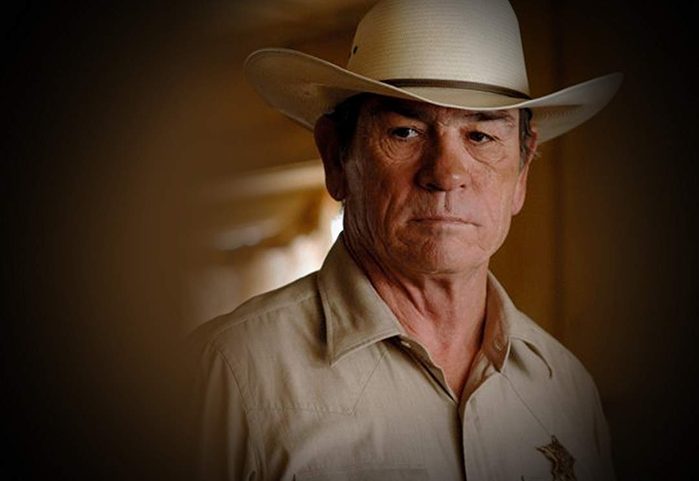
14. No Country for Old Men (2007)
The Coen Brothers have made funnier films (Raising Arizona), darker films (Barton Fink) and more emotional films (Inside Llewyn Davis), but No Country for Old Men is the closest to perfection the duo will likely ever achieve. Their “neo-noir western” acts like a greatest hits of all of their obsessions and quirks: a simple deal gone bad, an everyman facing impossible odds, a seemingly unstoppable villain, and profundity wrapped in hilarious nonsense. No Country for Old Men has dated nicely. Just don’t expect it to get any more cheerful. This is the real reason you hate scary movies.
What Should Have Won Best Picture: There Will Be Blood
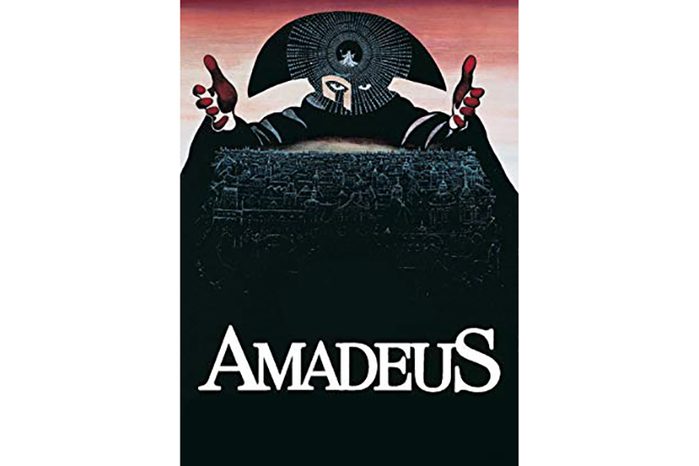
13. Amadeus (1984)
Amadeus is one of the few biopics to truly capture the spirit of the subject at hand. In other words, if Wolfgang Amadeus Mozart wanted to make a film about himself, it would probably look something like this Best Picture winner. Lavish, rebellious, funny and tragic, Milos Forman’s film about a young Mozart (Tom Hulce) and the man most envious of his genius, the composer Antonio Salieri (F. Murray Abraham), is surely one of the most audacious films ever made about music and the creative process. These 12 movies have the greatest soundtracks ever.
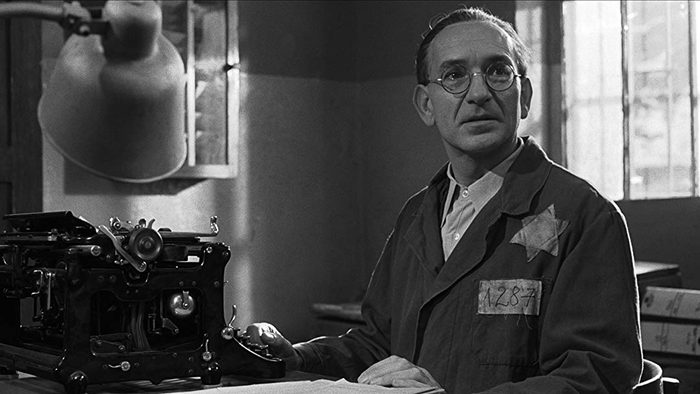
12. Schindler’s List (1993)
Steven Spielberg had made historical, adult-oriented stories before, but this black-and-white drama, which tells the tale of Oskar Schindler (Liam Neeson), a German industrialist and Nazi Party member who saved more than 1,000 Polish Jews during the Holocaust, still caught most audiences and critics off guard. As a technician, Spielberg has never been better: his command of performances, cinematography, production design and multiple tonal shifts is astounding. The result is a landmark depiction of one of the darkest chapters in world history.
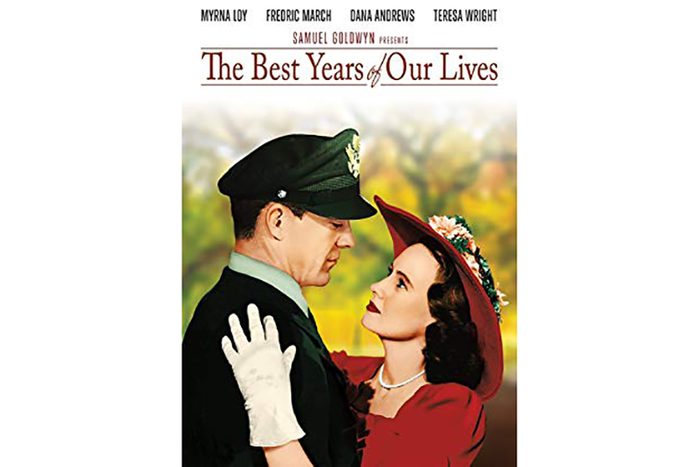
11. The Best Years of Our Lives (1946)
The war film is among the most popular of movie genres, and understandably so. But what happens when the heroes of the battlefield, the air, and the sea return home only to feel as though they’ve outlived their usefulness? William Wyler’s The Best Years of Our Lives picks up where World War II left off and tells the powerful story of three veterans who return to their hometowns and discover that civilian life will never be the same again. The main cast—Myrna Loy, Teresa Wright, Frederic March, and Dana Andrews—is as good as it gets.
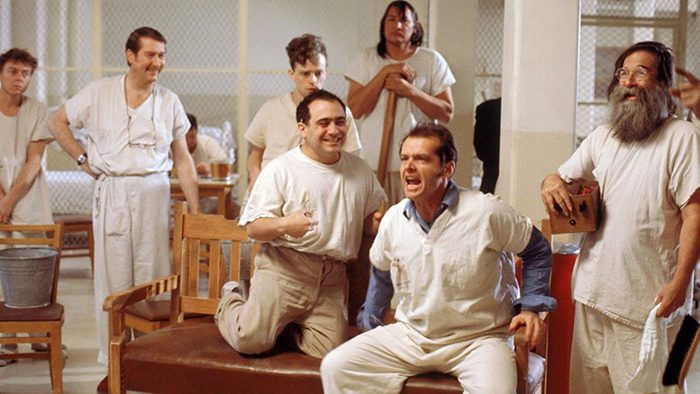
10. One Flew Over the Cuckoo’s Nest (1975)
Based on the 1962 Ken Kesey novel of the same name, Milos Forman’s One Flew Over the Cuckoo’s Nest tells the classic underdog story with equal servings of pathos and comedy. As mental hospital patient Randall McMurphy, Jack Nicholson embodies a rebel fighting against the system—in this case, the taciturn Nurse Ratched (superbly played by Louise Fletcher). One Flew Over the Cuckoo’s Nest holds as much cultural weight now as it did on its first release. It remains a powerful cautionary tale about the dangers of institutions and unchecked power. Do you know these famous movie quotes that everyone always gets wrong?
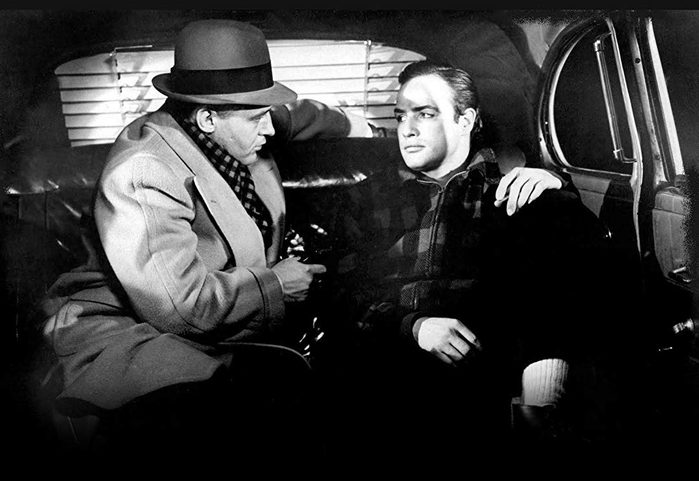
9. On the Waterfront (1954)
Marlon Brando changed film acting forever with his portrayal of boxer-turned-longshoreman Terry Malloy in Elia Kazan’s magnum opus, On the Waterfront. A tale of failed dreams and social responsibility, On the Waterfront charts Terry’s crisis of faith in the urban decay of Hoboken, New Jersey. Does he choose the dark side, filled with corrupt union bosses and murderous thugs, or the side of the light, represented by the sister of the man whose death he holds himself responsible for? Terry Mallow is American cinema’s quintessential fallen angel.
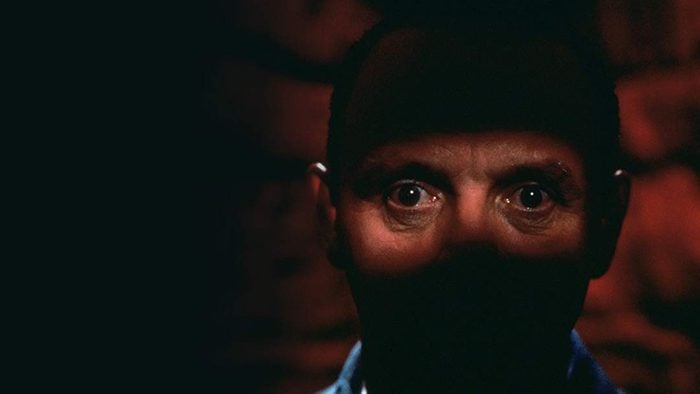
8. The Silence of the Lambs (1991)
It’s no wonder Jonathan Demme’s The Silence of the Lambs swept the “Big Five” categories at the Oscars and became an instant cultural touchstone. By the time serial killer Buffalo Bill gets his comeuppance, Anthony Hopkins’ Dr. Hannibal Lecter had become cinema’s most fascinating monster, Jodie Foster’s Clarice Starling its most inspiring hero, and chianti the wine of choice for psychopaths everywhere. The high point of The Silence of the Lambs, an impromptu therapy session that reveals the significance of the film’s title, remains one of the most haunting scenes in American movies.
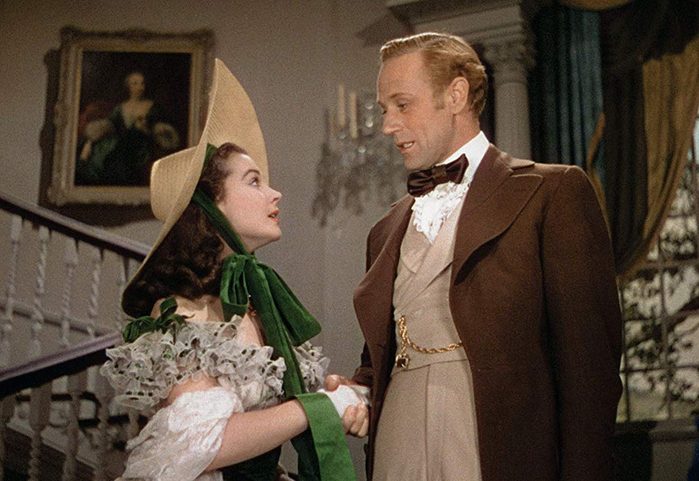
7. Gone with the Wind (1939)
Some filmgoers argue Gone with the Wind is symbolic of a bygone era in both Hollywood and American history. The film’s contemporary detractors point to its romanticized portrayal of the Old South as a way to discredit its artistic merit, and that’s a shame. Truth be told, there’s much to admire and enjoy in Victor Fleming’s four-hour epic: the majestic sweep of time covered by the narrative, the sumptuous costumes, the production design, Max Steiner’s stirring score, the Technicolor photography and the film’s refreshingly cynical depiction of love. Oh, and three little-known actors named Clark Gable, Vivien Leigh, and Olivia de Havilland, all at the top of their games.
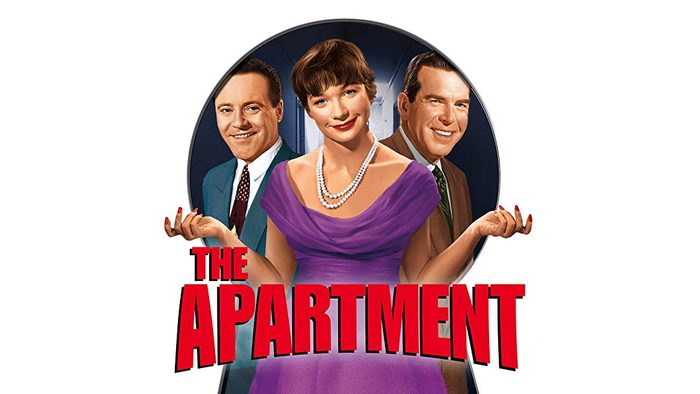
6. The Apartment (1960)
With The Apartment, director Billy Wilder hits the sweet spot between tragedy and comedy. Jack Lemmon plays C.C. Baxter, a lonely office drone who loans his apartment out to his company’s philandering executives. As Miss Kubelik, a sweet but impressionable elevator operator, Shirley MacLaine plays the perfect foil to Lemmon’s high-wire act of a performance. It’s impossible not to root for The Apartment’s two broken heroes, even as they make one morally questionable decision after another. The film’s final line is pure romantic bliss. Pay homage to the Big Apple’s quintessential movie moments with these iconic movie sets you can visit in real life.
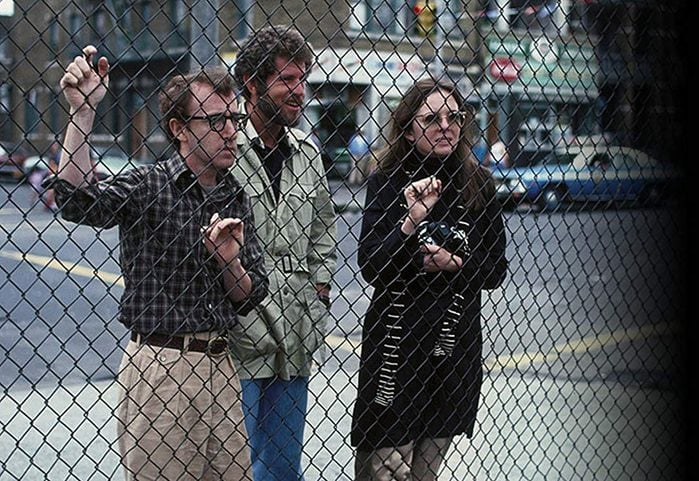
5. Annie Hall (1977)
Arguably the funniest film ever to win Best Picture, Annie Hall remains the archetypal Woody Allen movie. The comedian-turned-auteur utilizes every trick in the book—timeline jumps, split screens, breaking the fourth wall, subtitles to convey inner thoughts, animation—to depict the bumpy relationship between two idiosyncratic New Yorkers. Who else but Allen and Diane Keaton can make a silly scene about cooking lobsters feel poignant, or a brief moment on a park bench feel like true love? Every romantic comedy made since 1977 owes a debt to Annie Hall. Check out the 10 most romantic movies of all time.
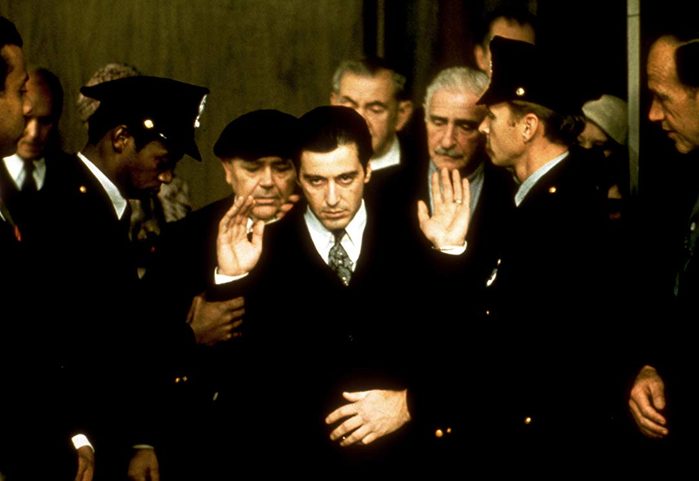
4. The Godfather Part II (1974)
Is The Godfather Part II superior to The Godfather? Ultimately, it doesn’t matter: the two films exist in tandem, each breathing a deeper meaning into the other. In this sequel, director Francis Ford Coppola broadens the story of the Corleone crime family: how Michael plans to hold sway over the criminal underworlds of Nevada and Cuba, and how his father, Vito, first settled in New York at the turn of the 20th century. Al Pacino and Talia Shire have never been better. The result, a distinctly American tale of fathers, sons, and sins, is a tragedy worthy of Shakespeare.
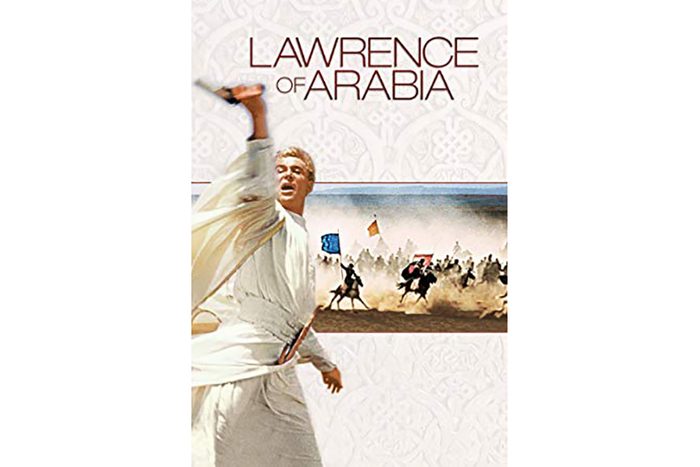
3. Lawrence of Arabia (1962)
David Lean’s semi-fictional take on the Middle East campaign during the First World War is the very definition of epic: sprawling desert landscapes, stunning 70mm cinematography, battle sequences, glorious music and one of the best-written screenplays in film history. But Lawrence of Arabia would mean nothing without the beating heart at its center. As T.E. Lawrence, Peter O’Toole brought to life cinema’s most complicated hero: by turns intelligent, compassionate, sadistic, egomaniacal and sexually ambiguous. They don’t make ’em like this anymore.
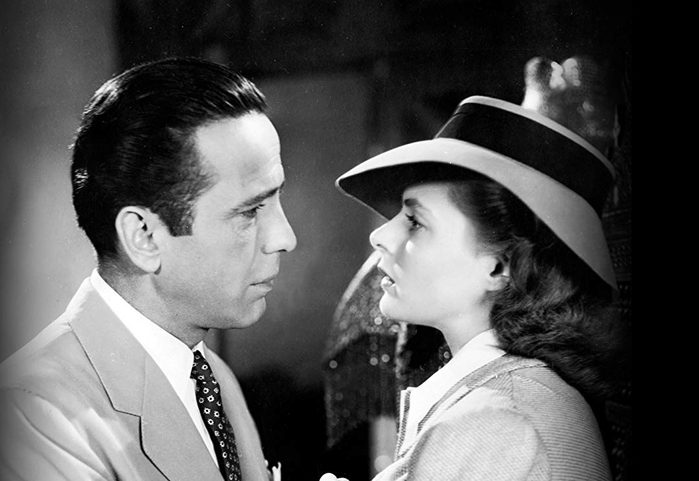
2. Casablanca (1943)
The first time Sam plays “As Time Goes By…” A bar full of expatriates and refugees singing “La Marseillaise…” Humphrey Bogart’s Rick and Ingrid Bergman’s Ilsa dancing to “Perfidia…” Captain Renault instructing his henchmen to round up the usual suspects… Everyone has their own favorite Casablanca moment, but one thing is certain: each one feels just right. The wonderfully intricate screenplay, stellar performances from Hollywood’s top character actors, and Michael Curtiz’s fluid directing style make Casablanca a landmark love story that feels as fresh and exciting on the 100th viewing as it does on the first.
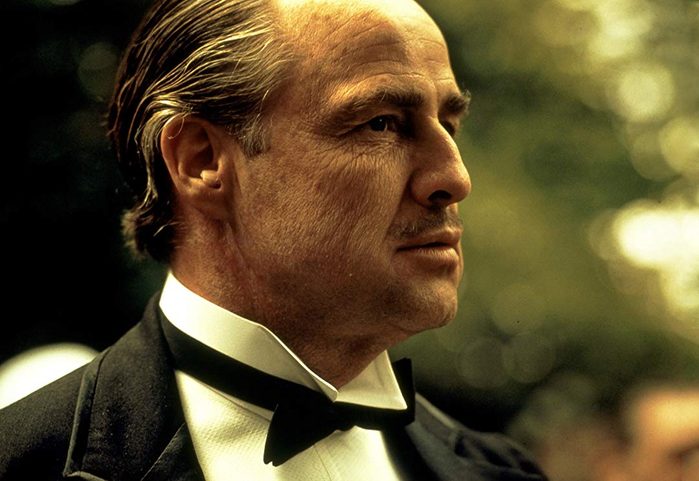
1. The Godfather (1972)
What is left to say about The Godfather that hasn’t already been said? Francis Ford Coppola’s landmark film launched hundreds of imitators but has yet to be equaled. There’s not a single misstep in its almost three-hour running time, thanks to a brilliant screenplay by Coppola and the book’s author, Mario Puzo, innovative cinematography by Gordon Willis, and what’s possibly the greatest cast ever assembled for a movie. No film captures the immigrant experience and the dark underbelly of the American Dream better than The Godfather. Now, can you guess the movie based on just one photo?